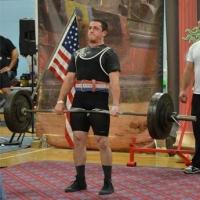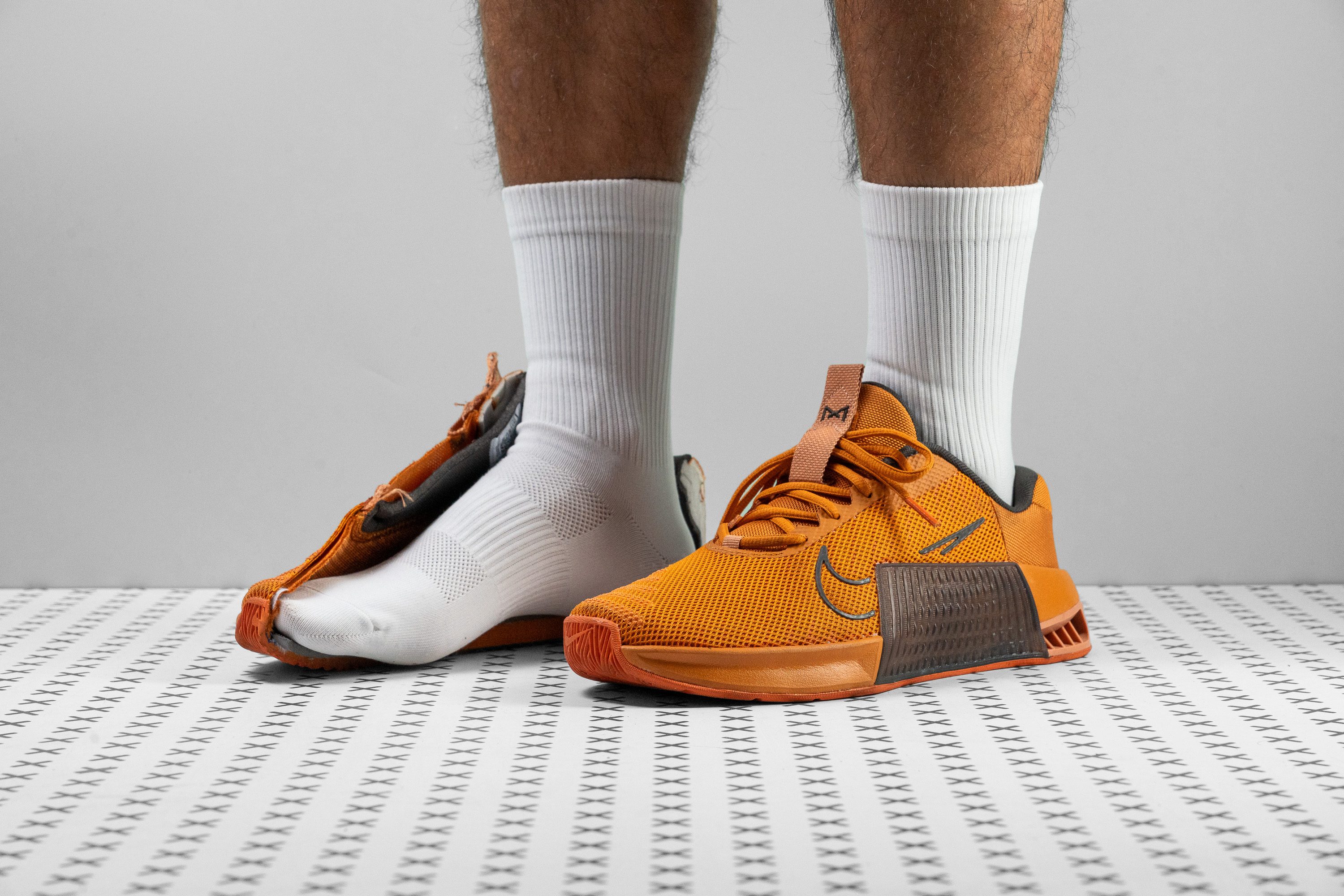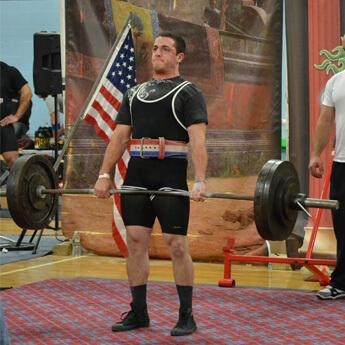Our verdict
- Top pick in best workout shoes (2023)
Pros
- Exceptionally stable for weightlifting
- One of the most durable cross-trainers
- The best shoe for rope climbs
- Reliable foot containment
- Very comfortable in-shoe feel
- Nice grip on gym floors
- Accommodates wide feet (finally!)
- Surprisingly flexible
Cons
- Heavier than average (and previous Metcons)
- Not great for cardio workouts and rope jumps
- So-so breathability
Audience verdict
- Top 13% most popular training shoes
Comparison
The most similar training shoes compared
+ + Add a shoe | |||||
|---|---|---|---|---|---|
| Audience score | 84 Good! | 84 Good! | 90 Great! | 87 Great! | |
| Price | $150 | $150 | $130 | $155 | |
| Use | CrossfitWorkoutCross-trainingGymHIIT | CrossfitWorkoutCross-trainingGymHIITJumping ropeAll sports | CrossfitWorkoutCross-trainingGymHIIT | CrossfitWorkoutCross-trainingGymHIIT | |
| Drop lab | 5.5 mm | 8.6 mm | 7.8 mm | 6.6 mm | |
| Heel stack lab | 21.5 mm | 26.0 mm | 22.6 mm | 22.8 mm | |
| Forefoot | 16.0 mm | 17.4 mm | 14.8 mm | 16.2 mm | |
| Weight lab | 13.3 oz / 378g | 11.7 oz / 332g | 12.1 oz / 343g | 11 oz / 312g | |
| Breathability | Moderate | Breathable | Breathable | Warm | |
| Width / fit | Wide | Narrow | Medium | Wide | |
| Toebox width | Medium | Medium | Medium | Medium | |
| Size | True to size | Slightly small | True to size | Slightly small | |
| Midsole softness | Firm | Balanced | Firm | Soft | |
| Stiffness | Stiff | Moderate | Moderate | Moderate | |
| Torsional rigidity | Stiff | Stiff | Moderate | Stiff | |
| Heel counter stiffness | Stiff | Stiff | Moderate | Stiff | |
| Toebox durability | Decent | Good | Decent | Good | |
| Heel padding durability | Good | Good | Good | Good | |
| Outsole durability | Good | Good | Good | Decent | |
| Midsole width - forefoot | Very wide | Narrow | Very wide | Wide | |
| Midsole width - heel | Wide | Average | Average | Average | |
| Widths available | Normal | Normal | NormalWide | Normal | |
| Insole thickness | Average | Average | Average | Average | |
| Outsole thickness | Average | Average | Average | Average | |
| Outsole hardness | Hard | Average | Average | - | |
| Heel tab | None | None | Pull tab | None | |
| Tongue: gusset type | Both sides (full) | Both sides (full) | Both sides (full) | Both sides (semi) | |
| Tongue padding | Thick | Average | Average | Average | |
| Ranking | #33 Bottom 32% | #21 Bottom 36% | #8 Top 25% | #12 Top 37% | |
| Popularity | #6 Top 13% | #5 Top 16% | #6 Top 19% | #3 Top 10% |
Who should buy
As Nike's flagship cross-training shoe, the Metcon 9 is perfectly suitable for athletes who:
- engage in Crossfit and do a lot of weightlifting
- perform rope climbs on a regular basis
- prefer extra room for the toes
- want a trainer with above-average durability
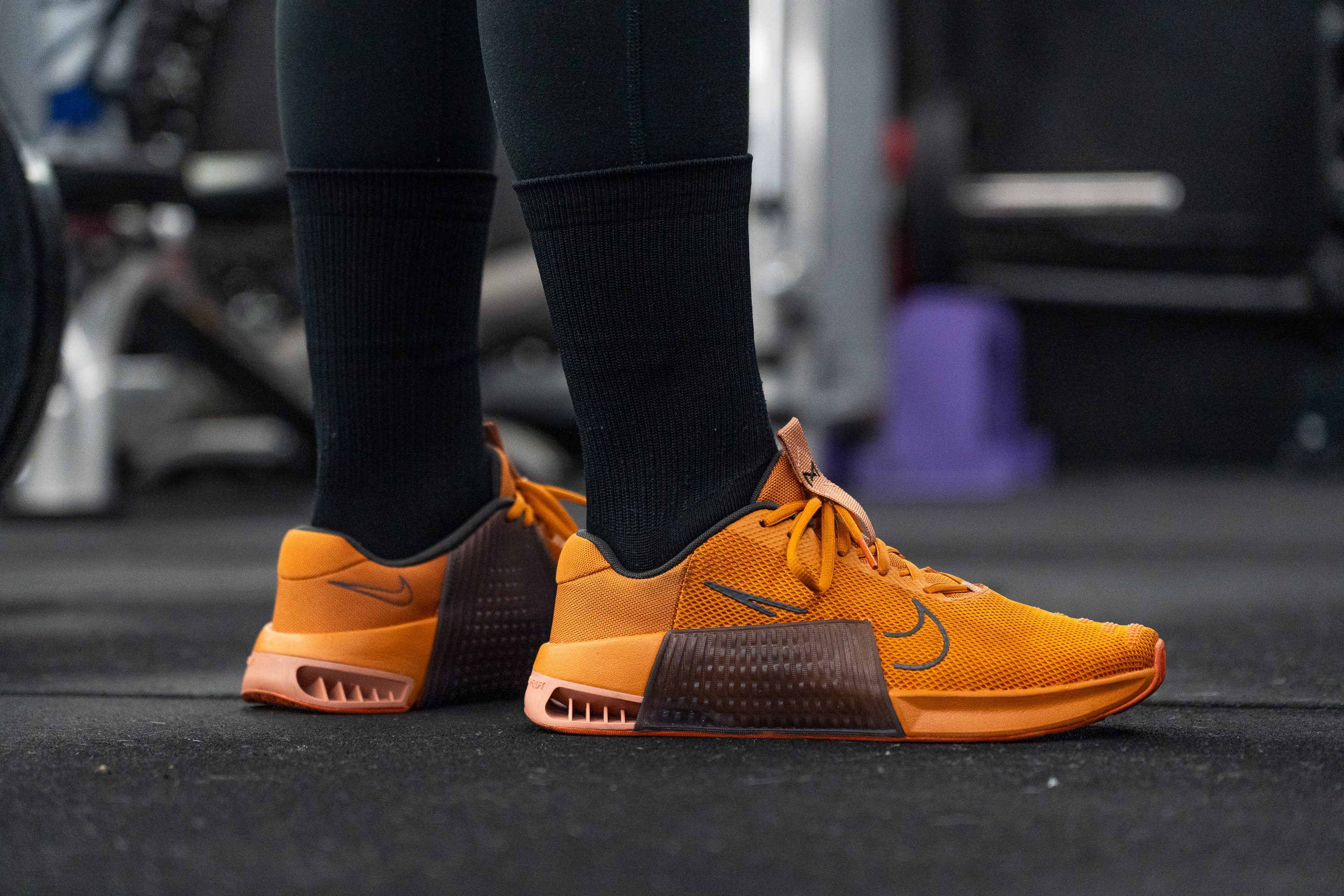
Who should NOT buy
We didn't feel as confident using this shoe for aerobic exercises as we did for lifting. If you want a shoe that provides a more balanced experience, we suggest going for the Free Metcon 5, which is still from Nike.
The 9th iteration comes with a $20 price increase which in our opinion, is not entirely justified. If you want equal performance with a lower price tag, we recommend the discounted Nike Metcon 8. You might as well be interested in the Metcon's close competitor, the Reebok Nano X3, also available at a discounted price.
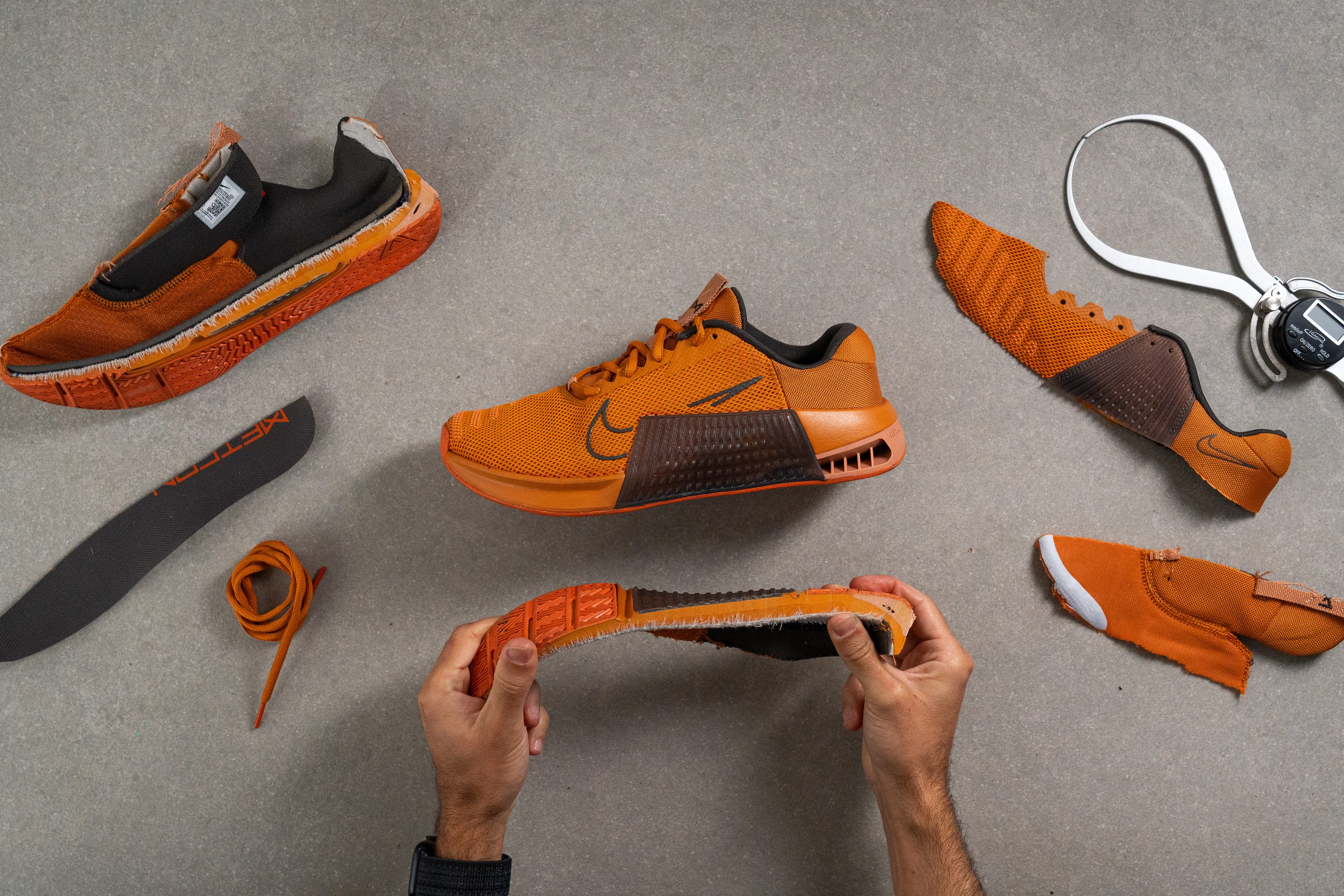
Cushioning
Shock absorption
As a Crossfit shoe that's biased towards weightlifting, there is hardly any cushioning in the Nike Metcon 9. Our shock absorption measurements showed very low readings of 69 SA in the heel and 51 SA in the forefoot, confirming that impact protection is limited here.
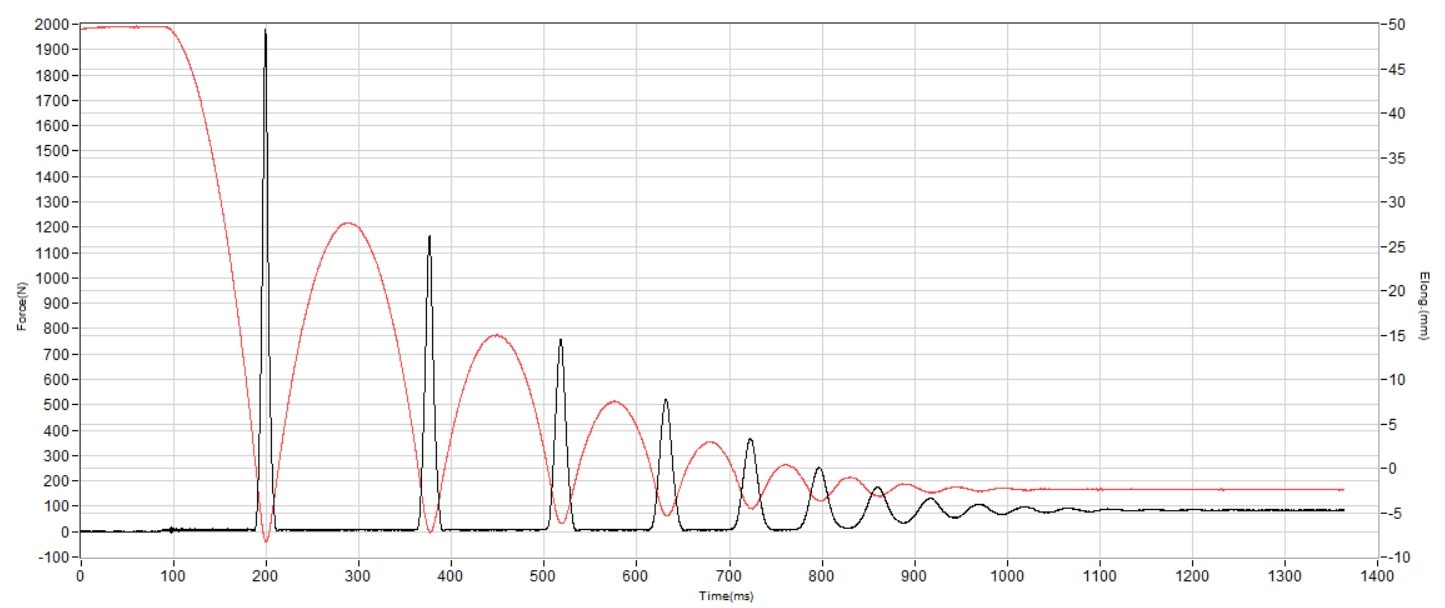
| Metcon 9 | 69 SA |
| Average | 81 SA |
Energy return
However, this Nike trainer doesn't feel as static as some of the tougher weightlifting shoes, showing some good elasticity and rebound underfoot.
In fact, its energy return exceeded the average in both the heel (58.6%) and the forefoot (60%), showing off the Metcon 9's dynamic nature. This makes the shoe more versatile for non-lifting exercises like sled pushes, box jumps, burpees, and even some short sprints.
| Metcon 9 | 58.6% |
| Average | 55.3% |
Heel stack
At the onset of Crossfit, athletes chose shoes with very minimal cushioning to accommodate their ever-changing routines. You really need that ground feel to remain stable and in control of the movement.
Nike Metcons have met that demand in every iteration. Measuring the heel stack of the Metcon 9 with a caliper, we got 21.5 mm. This is slightly lower than the average but it is an ideal platform thickness for a grounded experience.
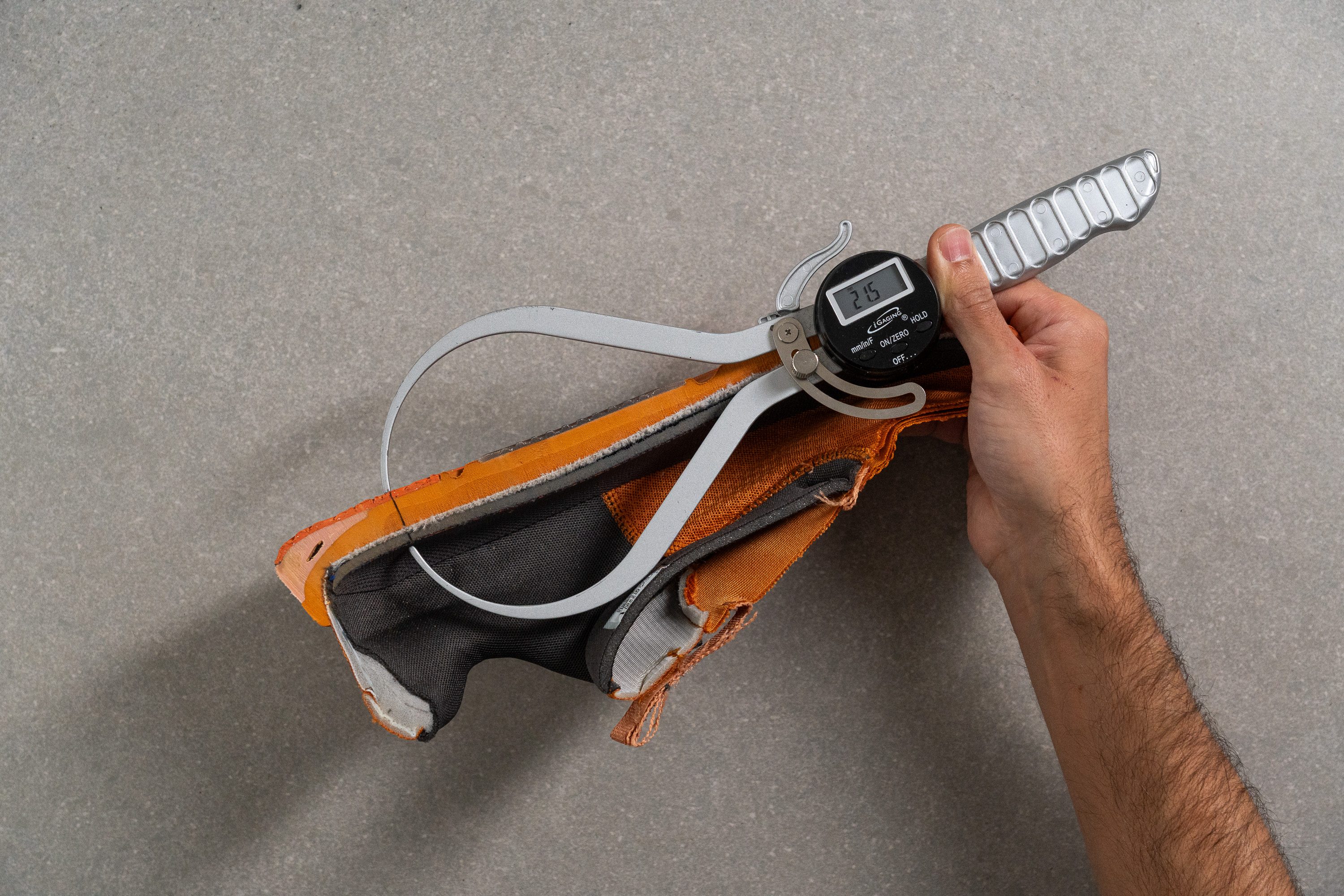
| Metcon 9 | 21.5 mm |
| Average | 24.6 mm |
Forefoot stack
Checking the shoe's forefoot stack, we got 16.0 mm on our caliper. This minimal cushioning helps the shoe be more flexible but detracts from impact protection under the ball of the foot.
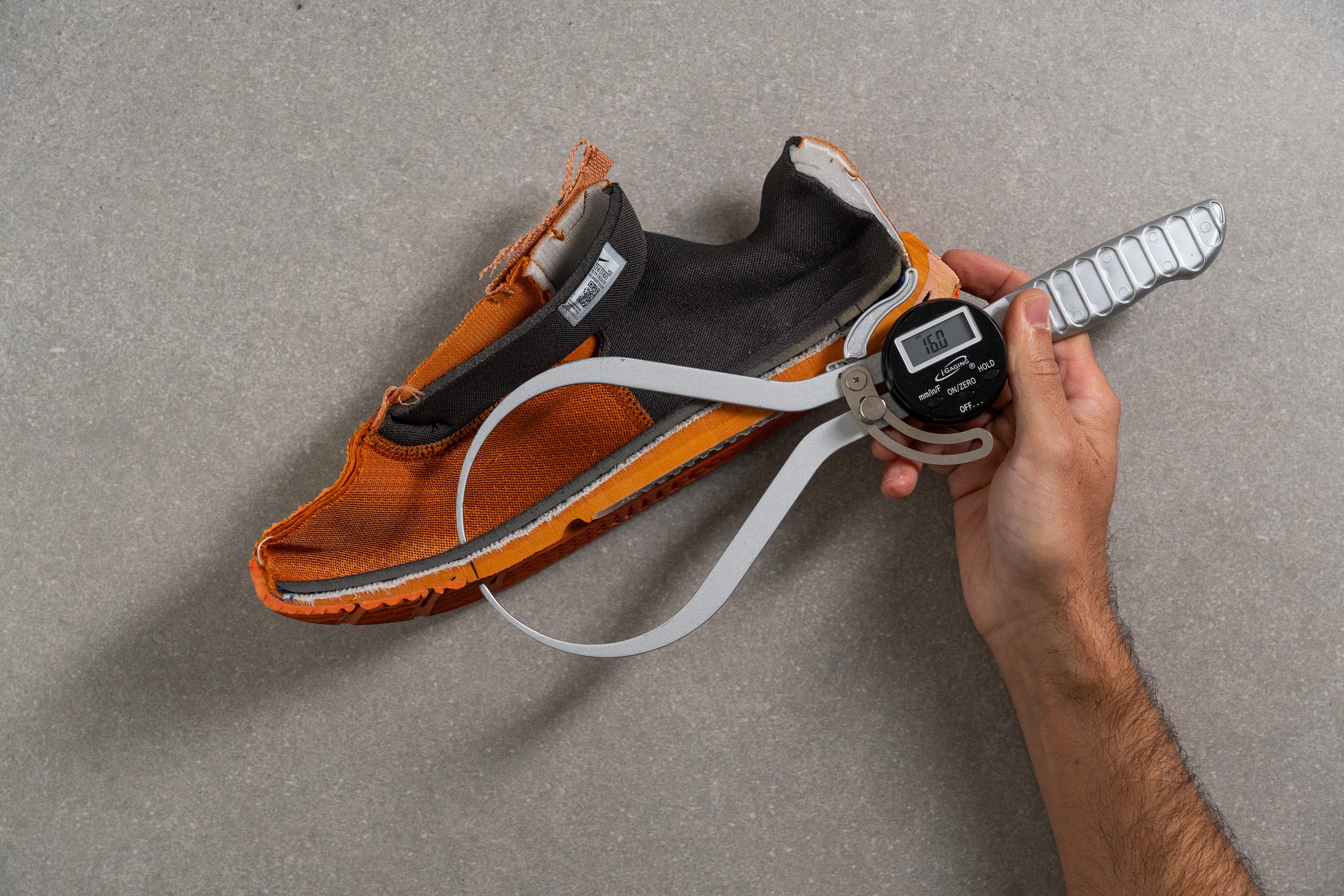
For instance, rope jumping in the Nike Metcon 9 felt like a punishment. Pairing that with clunky heels and heavy weight, we cannot recommend this trainer for regular rope jumps.
| Metcon 9 | 16.0 mm |
| Average | 18.2 mm |
Drop
In addition to the low stack, you also need a very low drop to feel stable in a Crossfit shoe. Traditionally, Nike Metcons came with a 4-mm drop and the brand claims 4 mm in the Metcon 9 as well.
However, based on our own stack measurements (insole and outsole included), we found it to be slightly higher - 5.5 mm. On foot, the difference is not highly critical but we must call Nike out on that one.
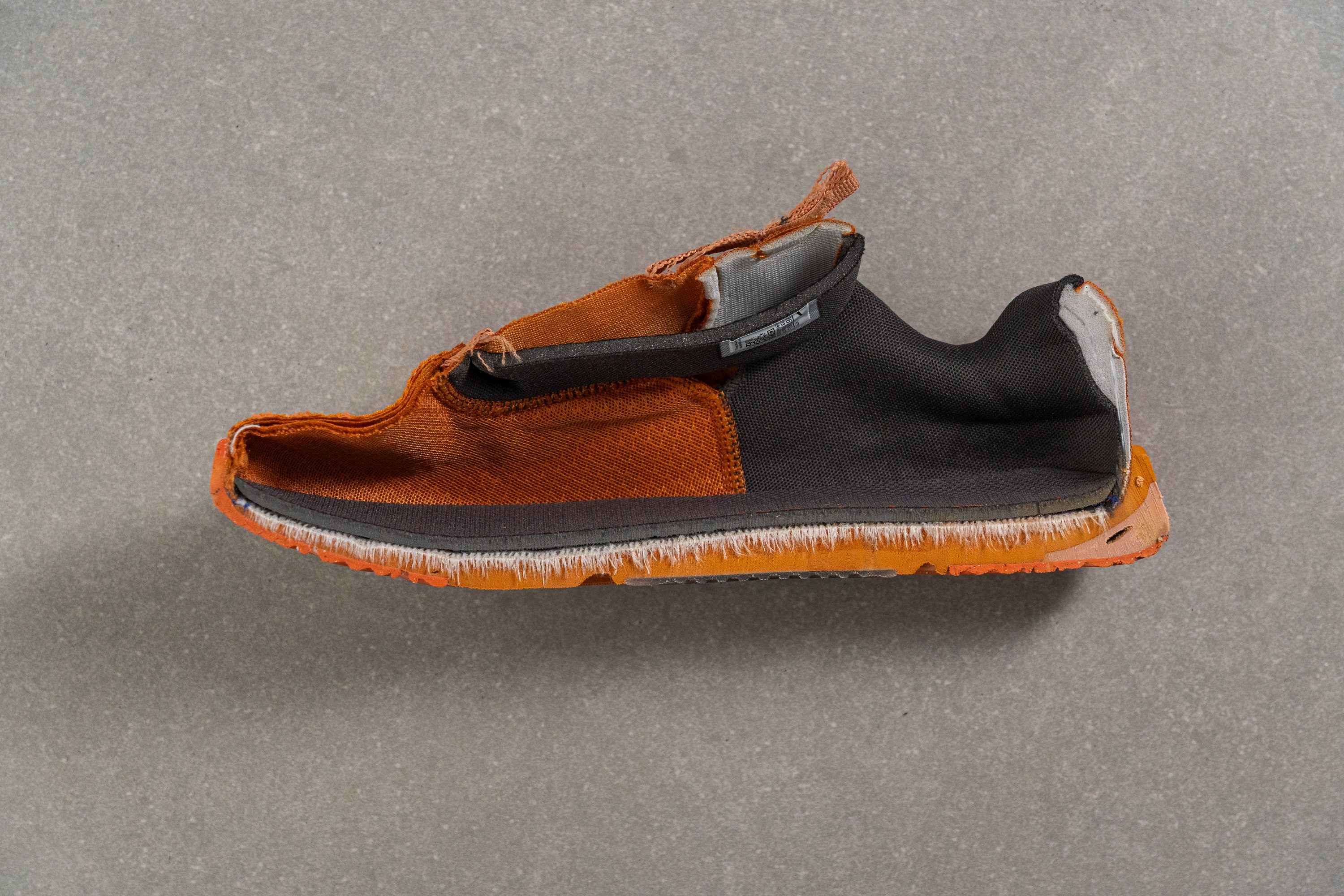
| Metcon 9 | 5.5 mm |
| Average | 6.3 mm |
Midsole softness
It has always been a dilemma for cross-training shoes - you need a firm platform for weightlifting stability but you also want some softness for jumping.
The Metcon 9 figured that one out by placing a softer foam inside the firmer one.
Measuring the firmer carrier foam with a durometer, we got 32.3 HA. That's 15% firmer than the average cushioning in training shoes.
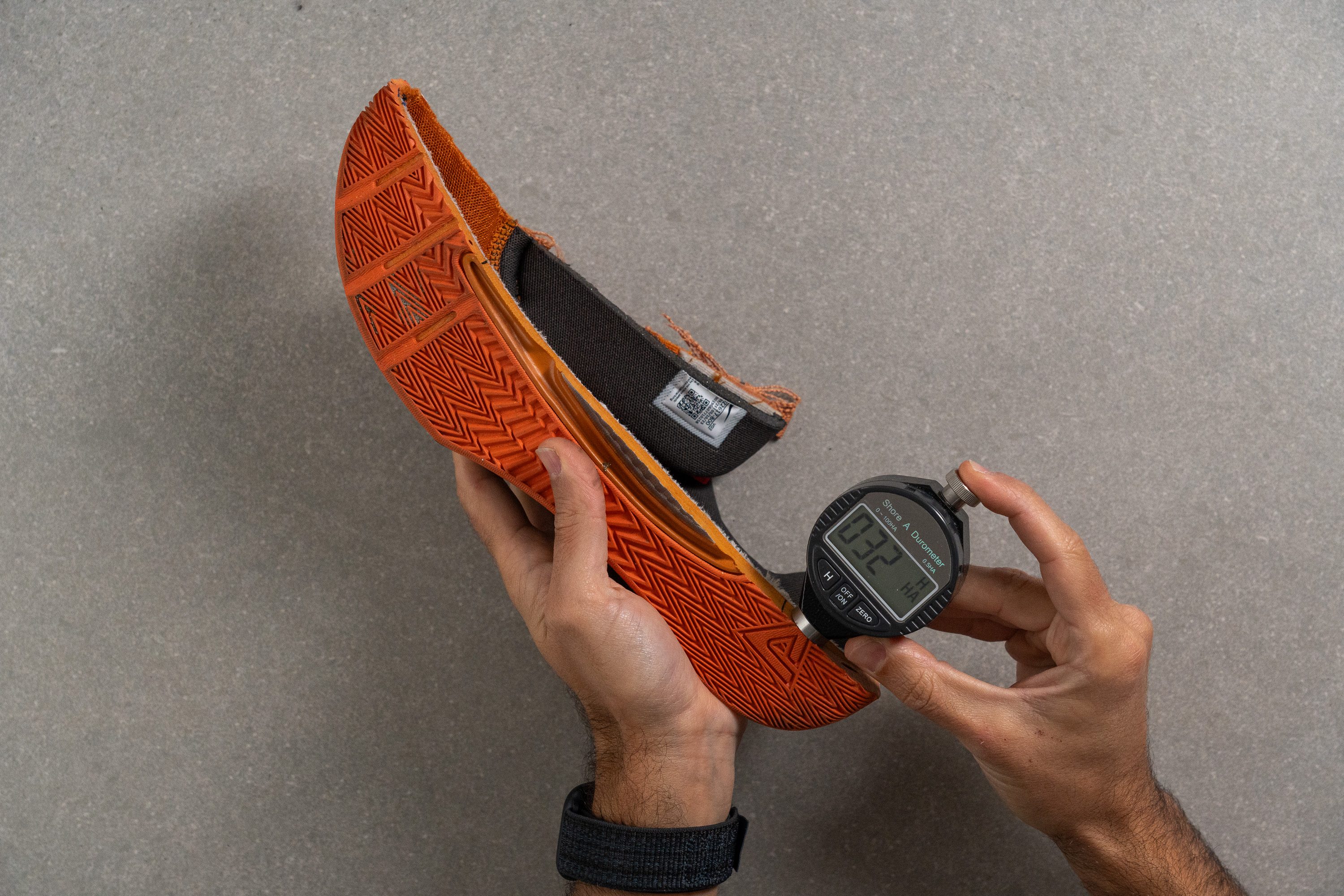
| Metcon 9 | 32.3 HA |
| Average | 27.8 HA |
Secondary foam softness
As for the softer foam inside the midsole, we found it to be just perfect for buffering box jumps and the like.
Pressing our durometer against it returned 22.0 HA. That is a whole 47% plusher than the primary carrier foam! But the two complement each other very well in the Metcon 9.
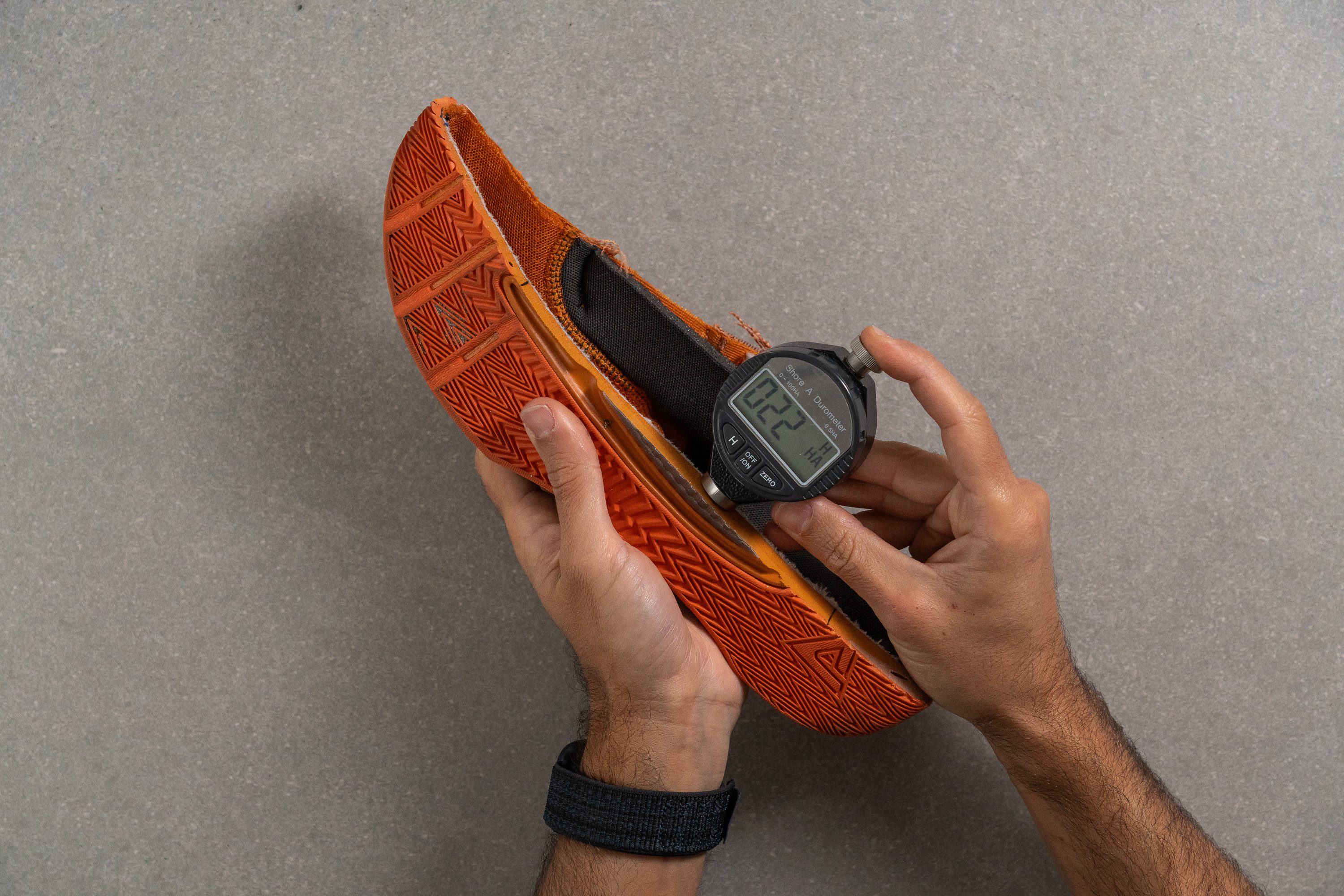
| Metcon 9 | 22.0 HA |
| Average | 37.2 HA |
Size and fit
Size
Nike Metcon 9 fits true to size (171 votes).
Width / Fit
In Nike Metcon's 9th iteration, the brand finally listened to what the athletes had been asking for. Even before creating the mold of the shoe and measuring it with a caliper, we could feel that this trainer offered more internal space than ever before.
The widest part of the trainer (around the ball of the foot) comes in at 100.5 mm! This is not only wider than the Metcon 8 but also notably wider than training shoes on average!
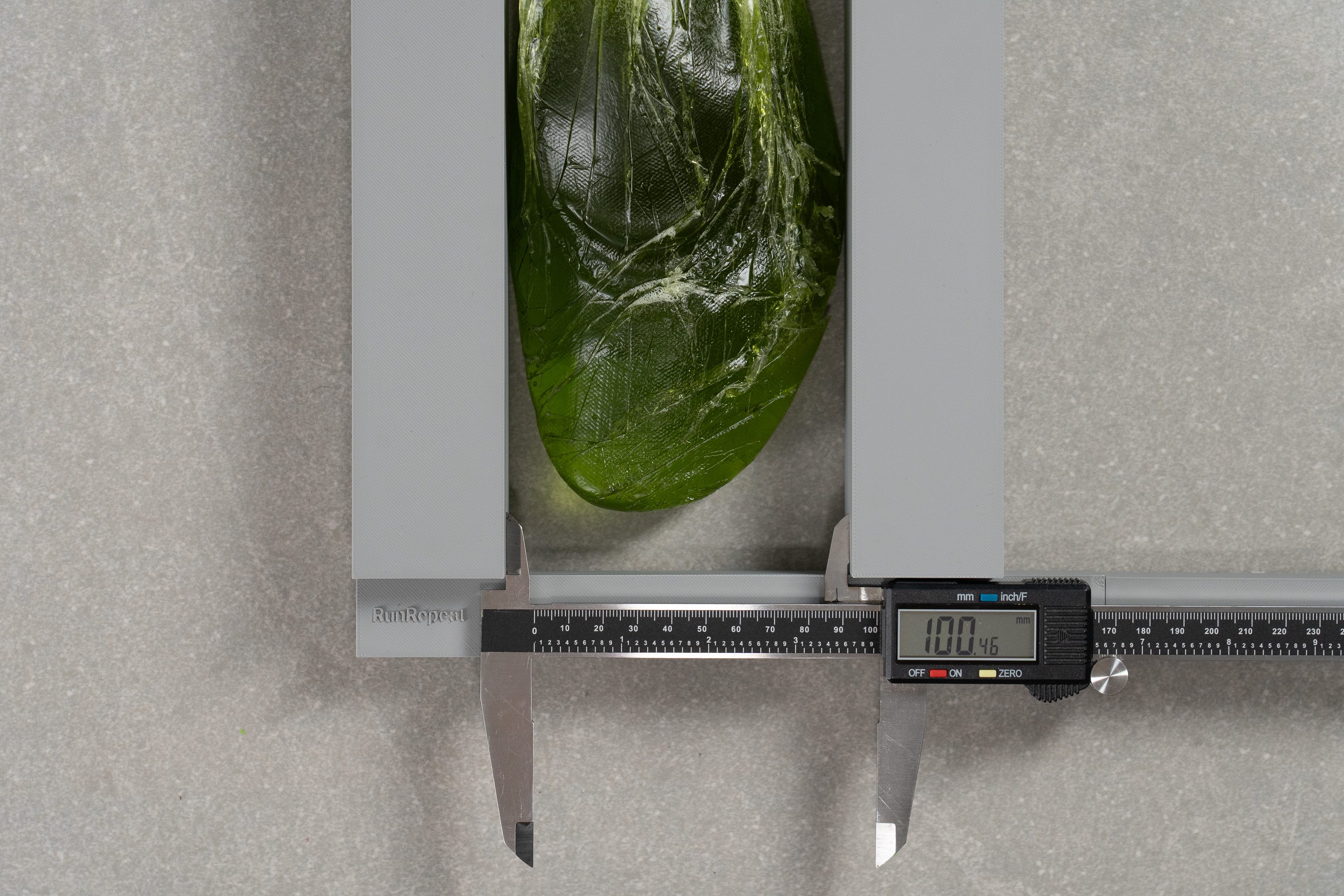
| Metcon 9 | 100.5 mm |
| Average | 97.4 mm |
Toebox width
If your toes ever felt cramped in a pair of gym shoes, the Metcon 9 can be a sweet relief.
It is not only wider than average in the widest part of the forefoot but also around the big toe. Our caliper recorded as much as 74.4 mm of width in the toebox.
That means no significant tapering or narrowing in the shoe's toebox shape. This is amazing for splaying toes, even if you're someone with pretty wide feet.
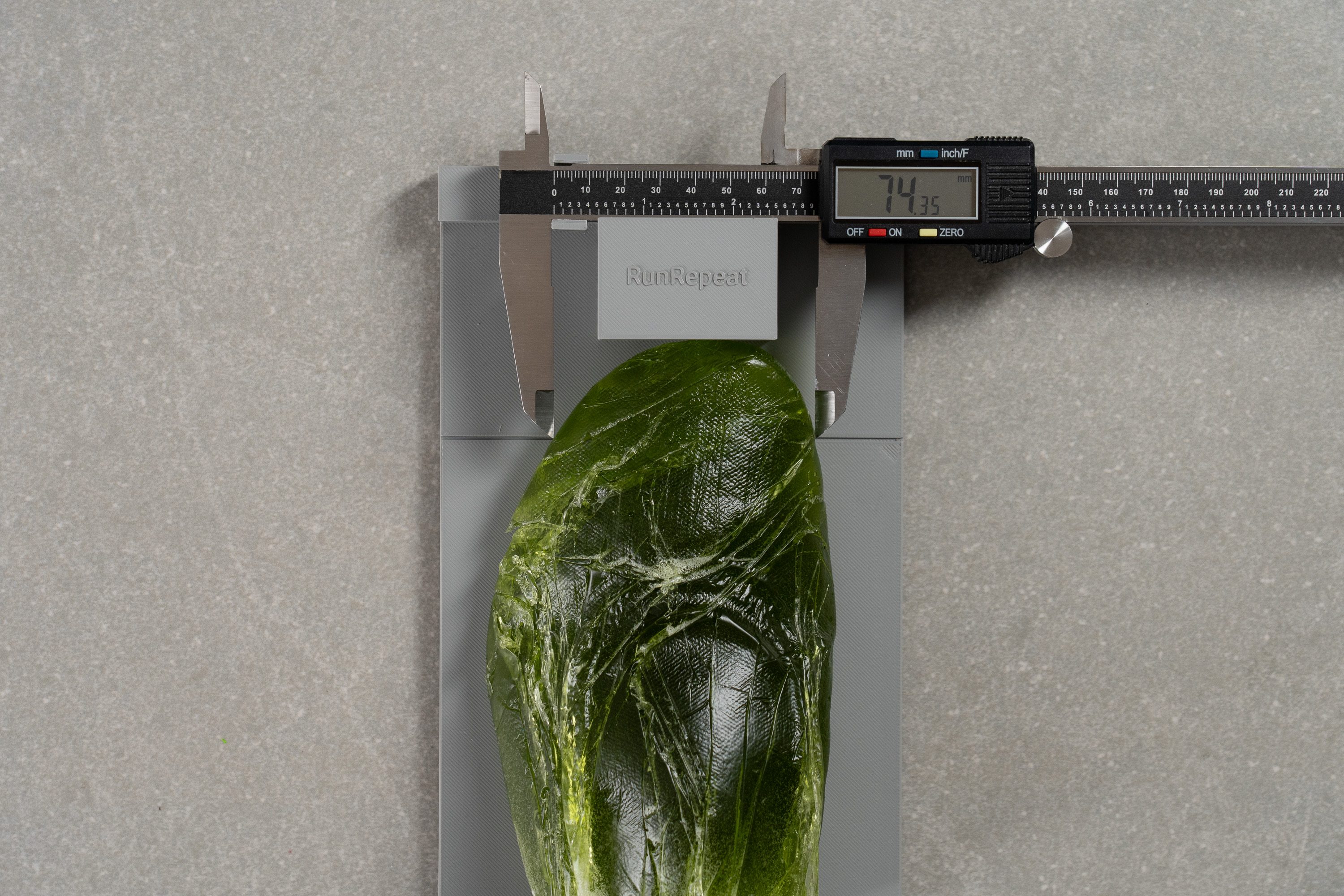
| Metcon 9 | 74.4 mm |
| Average | 73.8 mm |
Toebox height
The toebox height of the Metcon 9 did not disappoint either. Measuring its vertical space at 27.1 mm, we found it to be as high as the average.
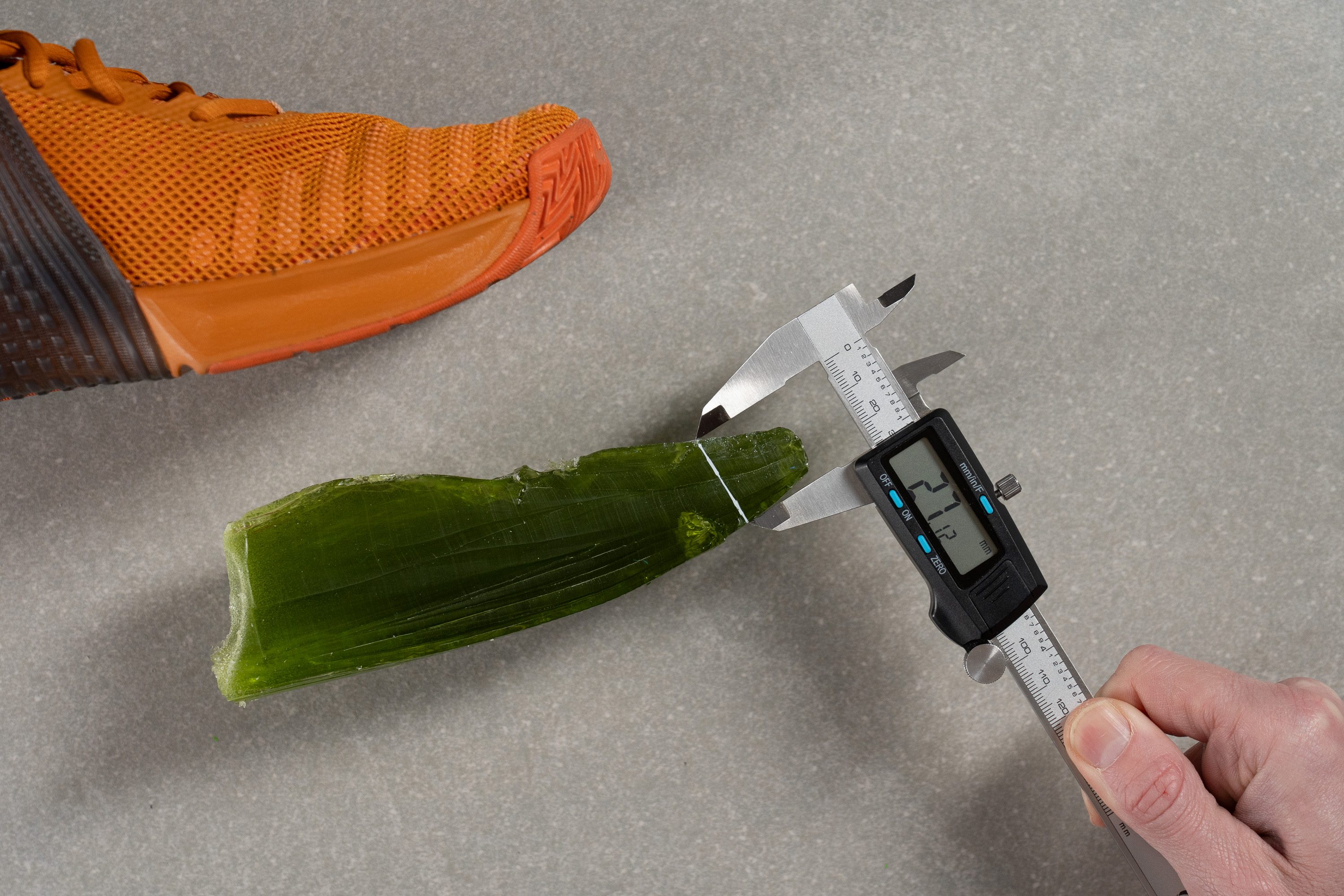
| Metcon 9 | 27.1 mm |
| Average | 27.4 mm |
Laces
No complaints here on our end. Nike chose excellent quality laces for the Nike Metcon 9. After our training session, they remained just as tight as when we first laced them up.
And of course, we can't ignore the handy lace lock! Very low-key, it complements the trainer's look very naturally.
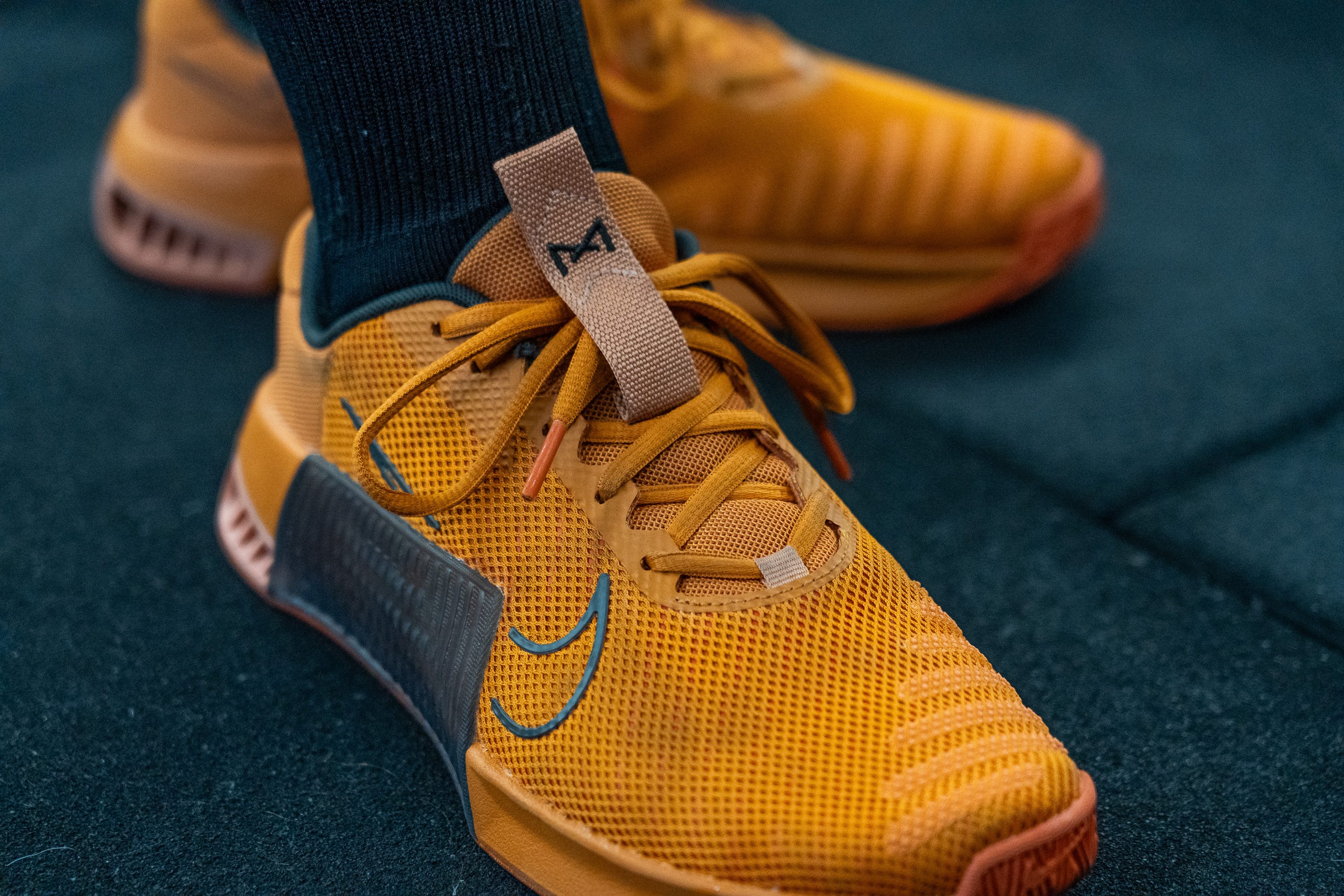
Traction / Grip
Traction test
Whether it's jumping on and off the box, doing burpees over a barbell on sweaty floors, or stabilizing yourself during cleans and jerks - the shoe's got you covered. Its herringbone traction pattern in the forefoot returned an above-average friction score of 0.36, passing our grip test with flying colors.
| Metcon 9 | 0.36 |
| Average | 0.33 |
Outsole design
The Metcon 9 features a herringbone pattern throughout its outsole. However, its tread lines get shallower and smaller in the heel and notably more aggressive and thick in the forefoot. This setup allows for a combination of a strong grip in the forefoot (where it's most needed during the workout) and better ground contact in the heel for stability when lifting.
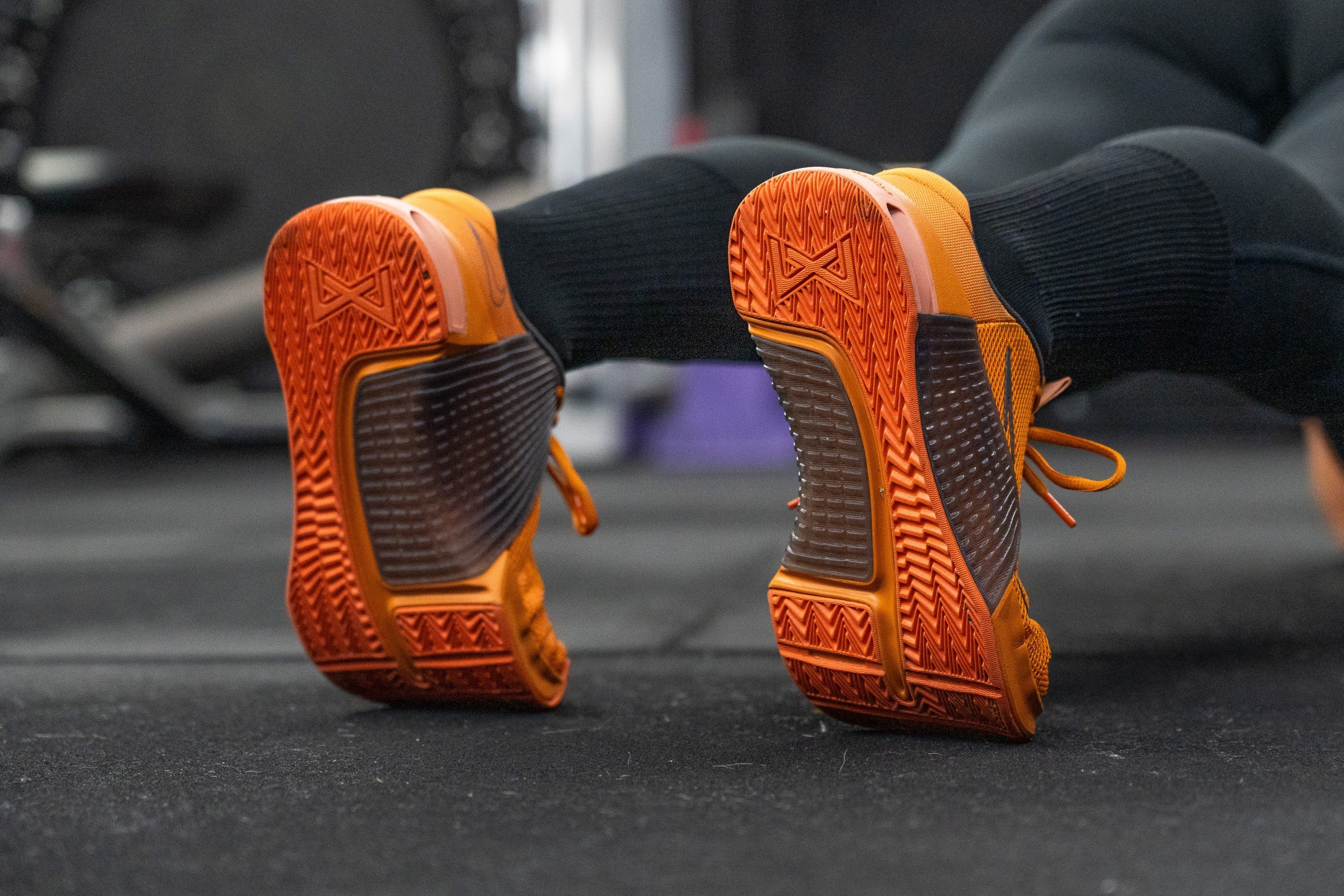
Flexibility / Stiffness
The Nike Metcon's beastly construction makes it look like a hyper-stiff trainer in every way. And it feels that way too.
To measure the shoe's flexibility in numbers, we checked how much force it takes to bend it to a 30-degree angle. According to our shoe flexing tester, it requires 13.3N which is notably more than it takes on average!
We were still able to perform planks, burpees, push-ups, and simply walk around the gym in the Metcon 9, but it's clear that the shoe is not cut out to do just that. If you want more forefoot flexibility, try the Nike Free Metcon 6.
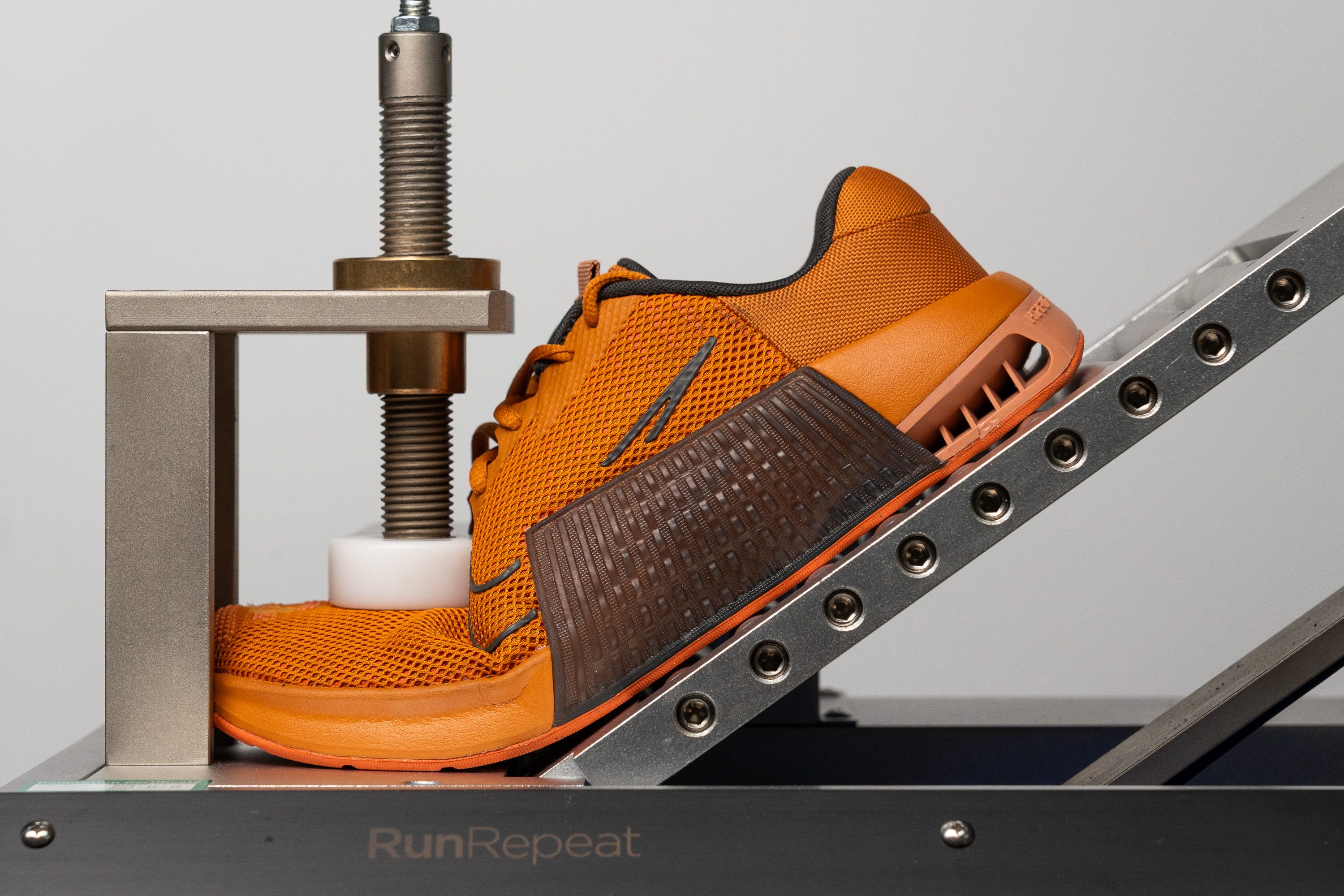
| Metcon 9 | 13.3N |
| Average | 10.1N |
Weight
Brace yourselves because the Metcon 9 just got heavier than any other Metcon before it.
Tipping the scale at 13.3 oz (378g), it is not only 1.5 oz heavier than its predecessor. It is also almost 2 oz heavier than cross-trainers on average!
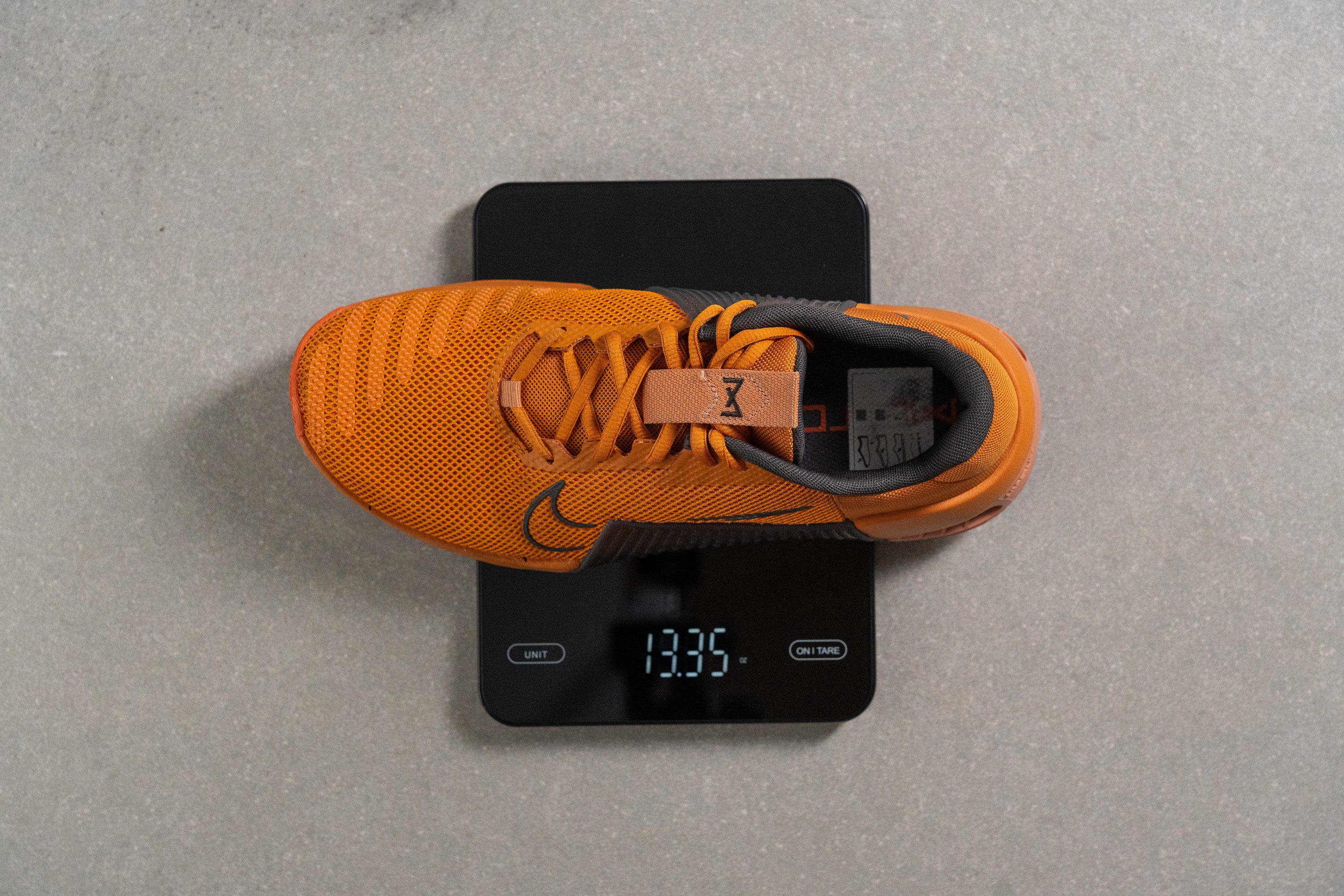
In addition to being heavy, this Nike shoe is also quite clunky due to its substantial Hyperlift heel. It works wonders in weightlifting but is absolutely NOT your best bet for high-impact aerobic workouts or, God forbid, runs!
The Nike Free Metcon 5 (10.5 oz) or the Nike Zoom Metcon Turbo 2 (12.01 oz) are more suitable for that.
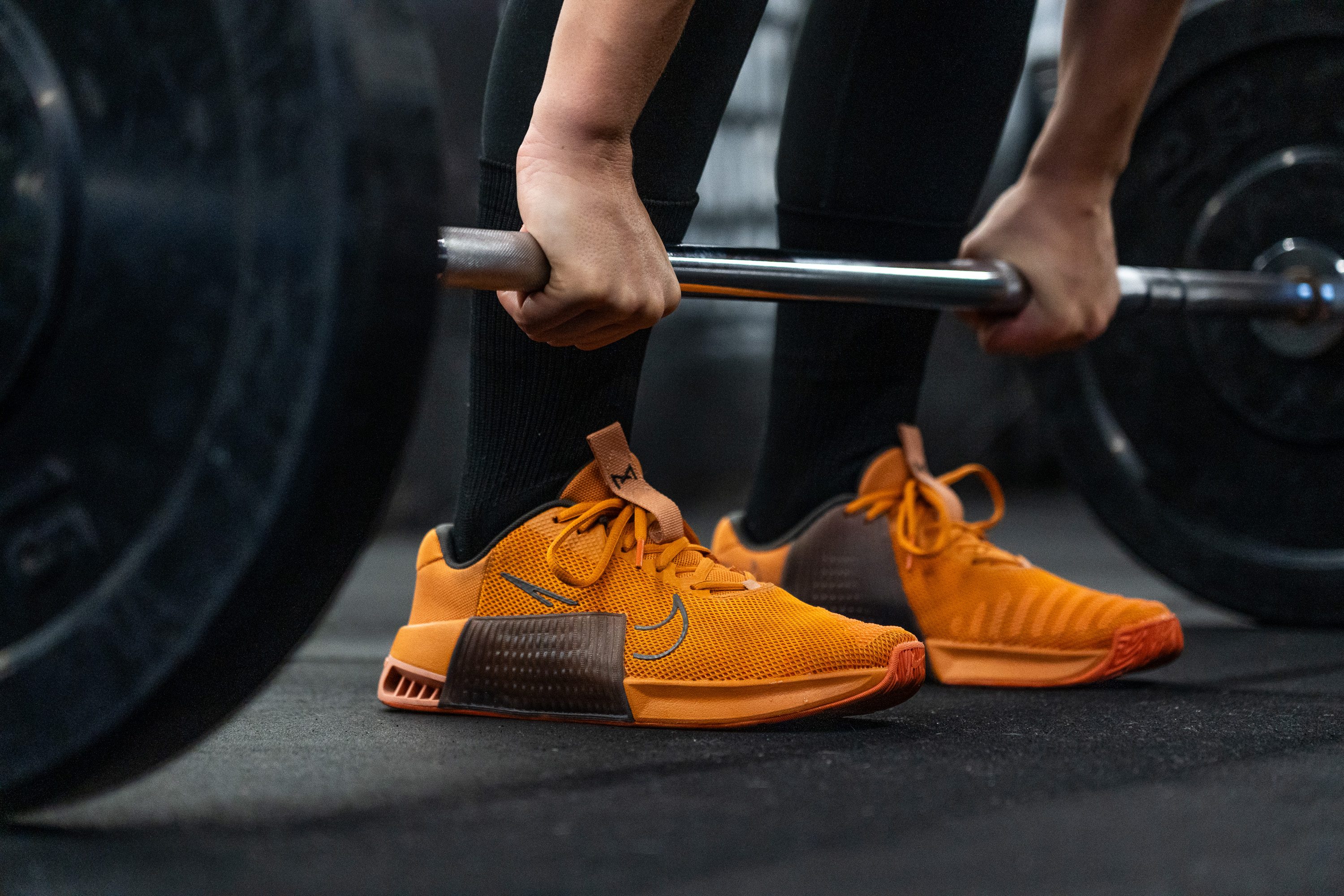
P.S. Oh, and be prepared that the Metcon 9 will look like it's 2 sizes bigger on the foot.
| Metcon 9 | 13.3 oz (378g) |
| Average | 10.8 oz (306g) |
Breathability
Nike didn't seem to notice the more frequent heat waves on the planet and chose to make the Metcon 9 slightly less breathable than its predecessor.
Putting the shoe through our smoke-pumping test, we found that the mesh lets the smoke out at a notably slower pace than the Metcon 8. Based on this, we assessed the shoe's breathability with an average 3 out of 5 score.
This makes much more sense when we put the shoe's cut-in-half upper against the light. As you can see, the shoe lining below the mesh is so dense, it doesn't even let the light shine through!
Let's have an even closer look at the shoe's upper through our microscope.
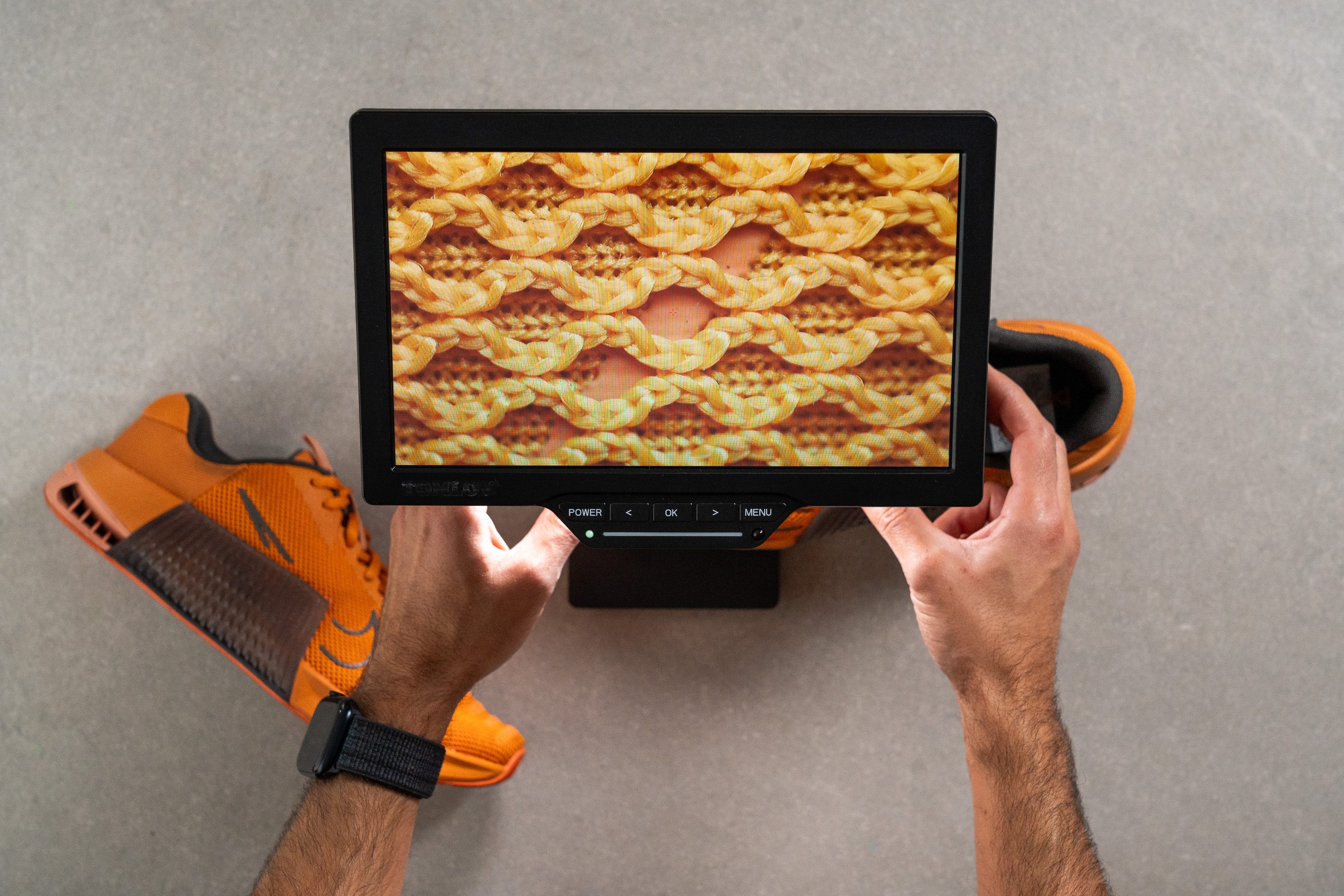
It is very clear that there is a dense layer of textile underneath the mesh. We're surprised that this shoe even breathes!
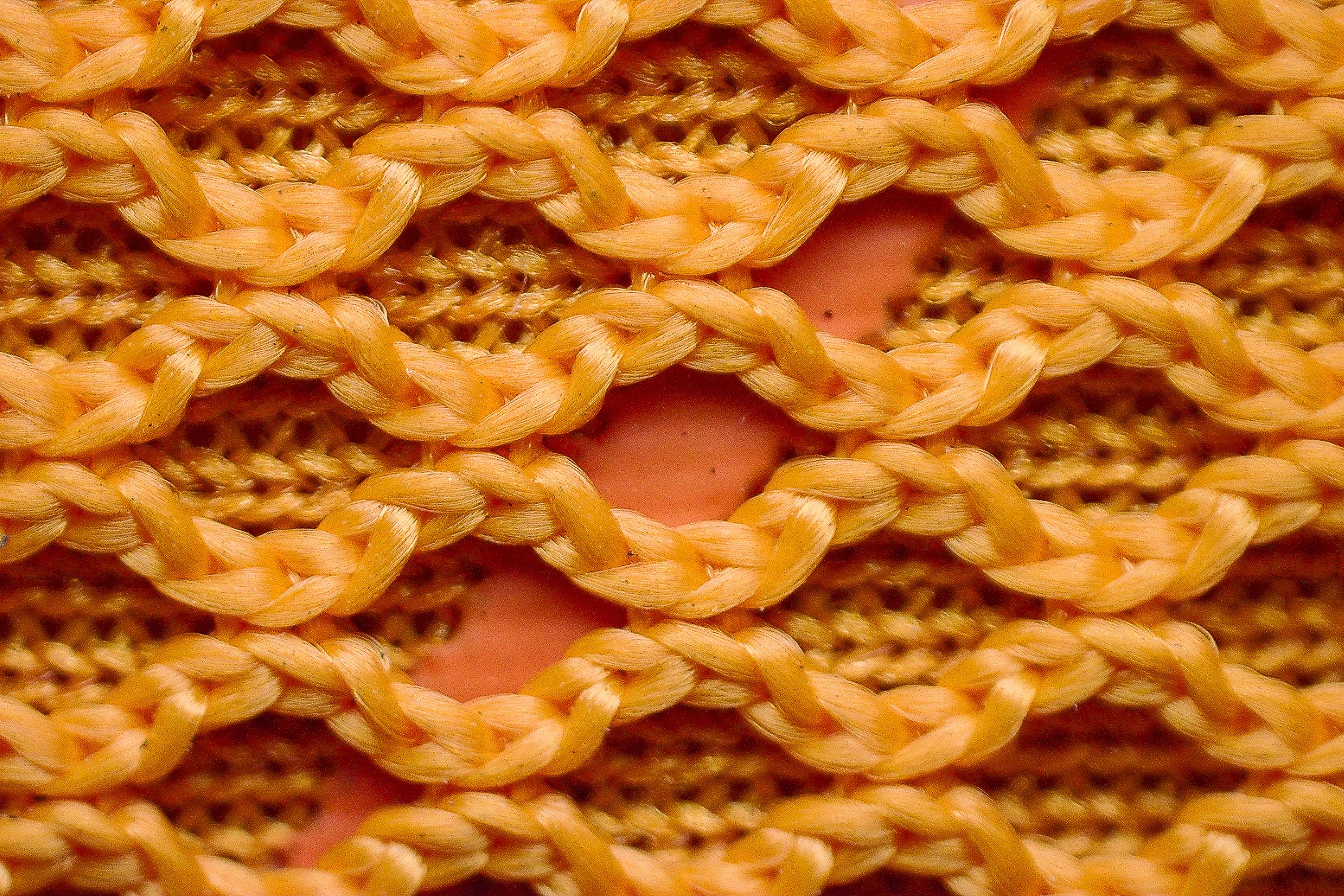
But luckily, the Metcon 9 is not as toasty as the NOBULL trainers (only 1 out of 5 for breathability).
| Metcon 9 | 3 |
| Average | 3.6 |
Stability
Lateral stability test
Stability is the Nike Metcon's second name.
Its wide base, stiff platform, and lots of stabilizing components make this trainer exceptionally planted.
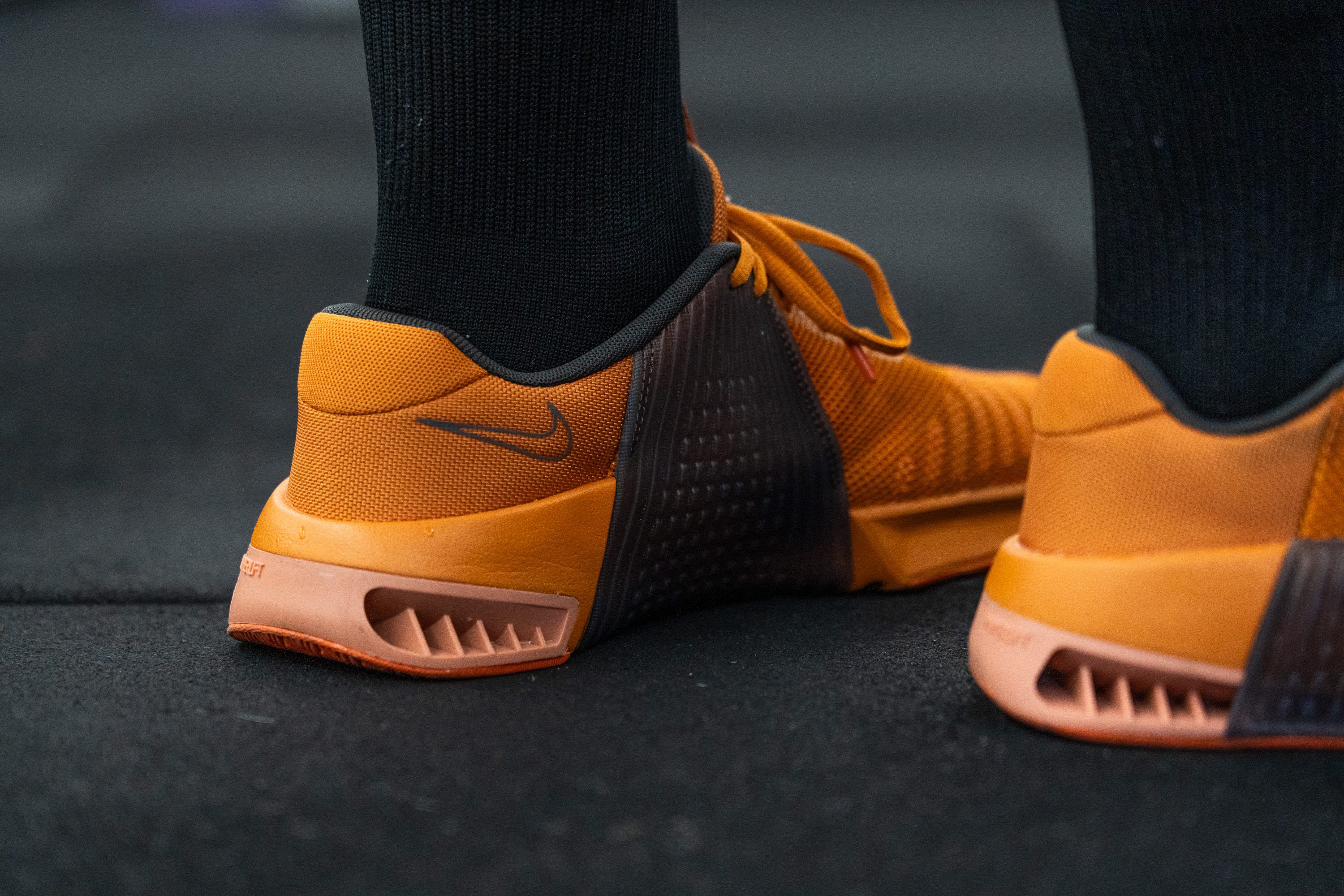
The most notable feature of the trainer must be the Hyperlift, a piece of sturdy TPU plastic under the heel. This element is non-compressible and can help the wearer take on very heavy loads without feeling wobbly.
From our experience, it is practically impossible to feel off-balance in the Nike Metcon 9.
Torsional rigidity
First of all, you can get a good idea of the shoe's stable character just by attempting to twist it with your hands.
As you can see from our manual test, this trainer is not the one that will bend to your will. On a 1-5 scale, where 5 is the stiffest, we assessed the Metcon's torsional rigidity with a maximum score of 5.
No matter how intense your workout of the day gets, this trainer will never let you twist your ankle.
| Metcon 9 | 5 |
| Average | 2.8 |
Heel counter stiffness
Lifting a heavy-loaded barbell, you can rest assured that your ankles will not get shaky thanks to the shoe's firm heel hold.
We felt very little give when pushing and squeezing the shoe's heel counter. On a 1-5 scale, we rated its stiffness with a high score of 4.
| Metcon 9 | 4 |
| Average | 2.7 |
Midsole width - forefoot
Very few training shoes can compete with the Metcon 9's platform width. On foot, it feels like an actual aircraft carrier!
In the widest part of the forefoot, our caliper showed a measurement of 116.9 mm.
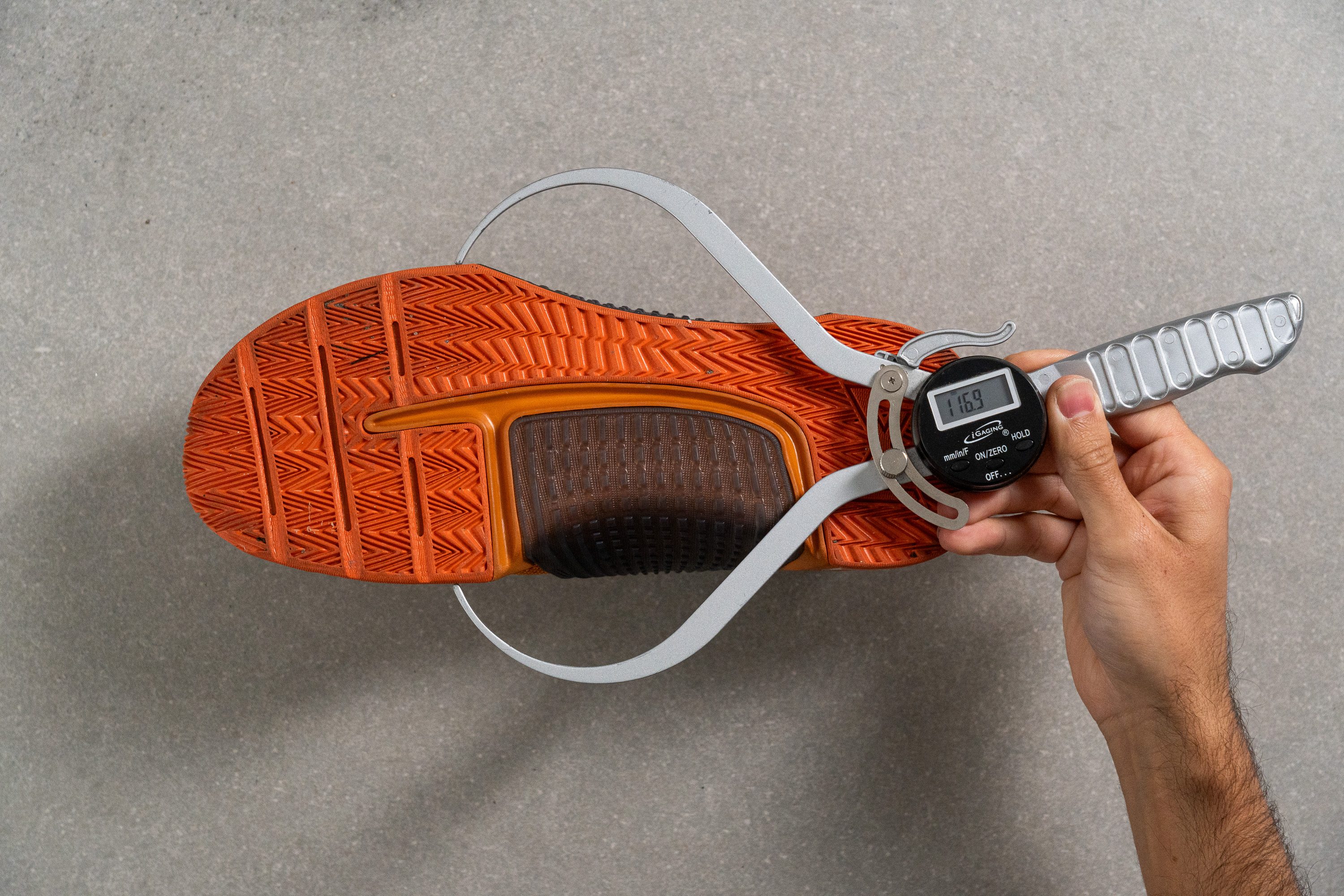
| Metcon 9 | 116.9 mm |
| Average | 110.8 mm |
Midsole width - heel
This Nike shoe also proved to be among the widest in the heel portion of the sole. Based on our caliper, it comes in at 95.0 mm in the widest part of the rearfoot.
Such a large contact area with the floor helps to stabilize the foot with minimal effort. That way, you can focus more on performing an exercise and less on worrying about your feet.
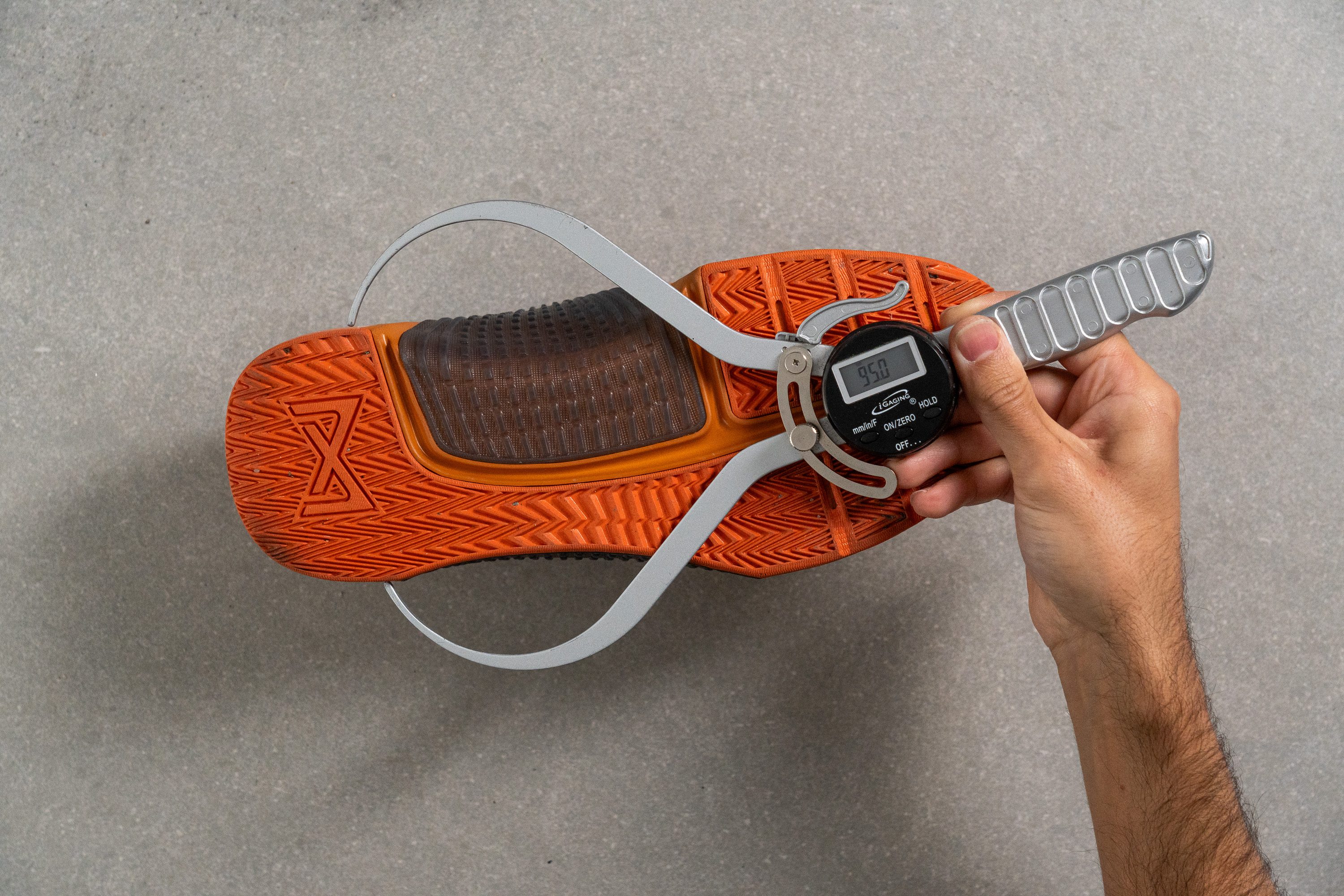
| Metcon 9 | 95.0 mm |
| Average | 87.1 mm |
Durability
Toebox durability
Crossfit can be especially tough on shoe uppers with its repeated slashes, foot drags, and rope climbs. So, Nike thoughtfully added protective dots on the side of the Metcon 9's toebox. But are they really effective?
Armed with a highly abrasive Dremel tool, we drilled the trainer's toebox for 12 seconds at a speed of 5K RPM. To keep this test consistent across all training shoes, we always apply the same pressure 3.2N, and put the tool against the same spot.
Indeed, the rubberized dots took the bullet for the shoe's mesh! Given how dainty that fabric is, adding some protection prevented the toebox from developing a see-through hole and earned the Metcon 9 a solid 3 out of 5. Note that this score is higher than the average.
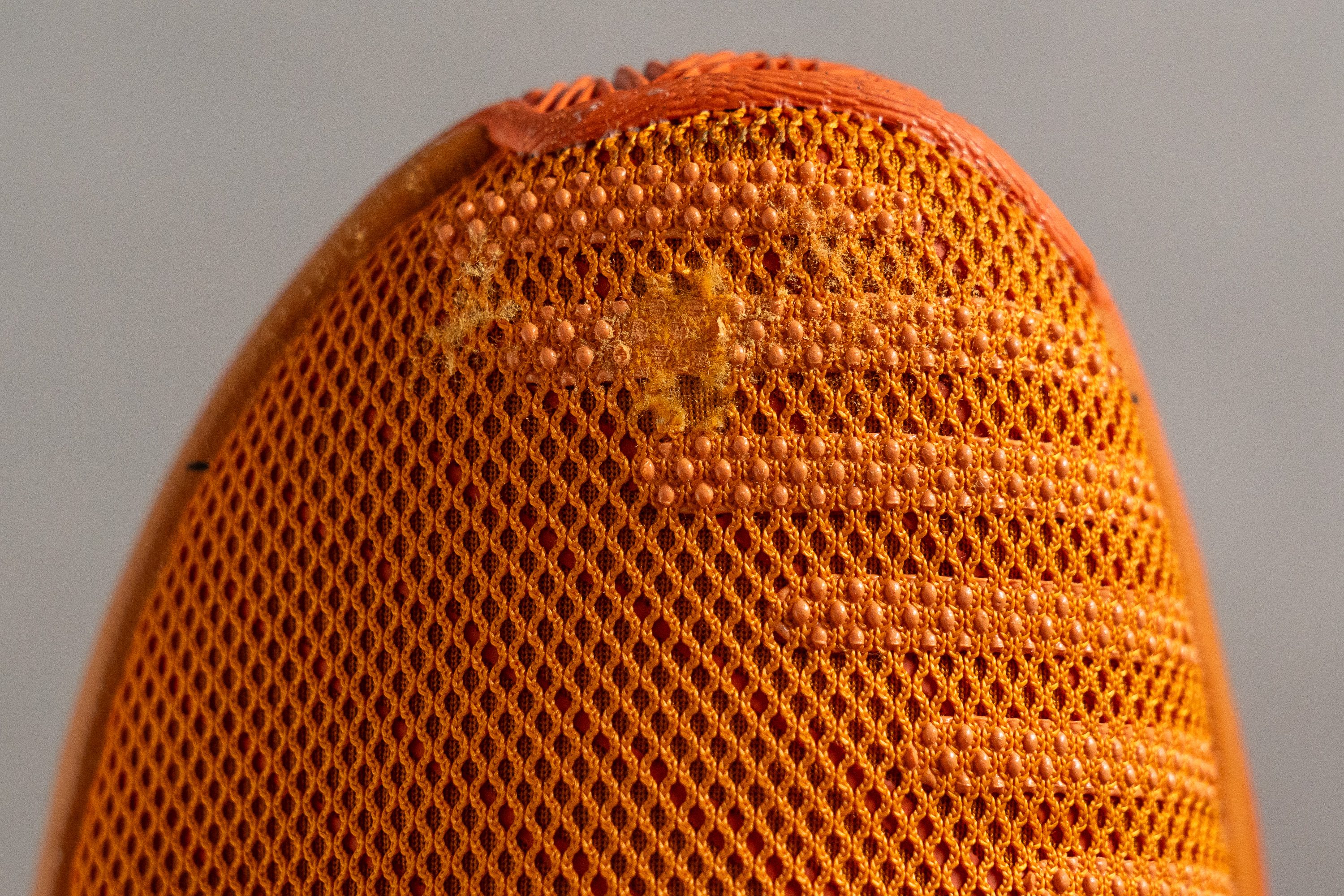
| Metcon 9 | 3 |
| Average | 2.5 |
Heel padding durability
The Metcon 9 keeps proving that it's worth the higher price. This time, with its impressively sturdy collar lining.
After holding the Dremel against this delicate part of the shoe for 4 seconds, the damage was barely noticeable and pretty much cosmetic.
Looks like it will take hundreds of workouts before the friction develops holes in this shoe's collar. We can confidently rate the shoe's heel collar padding with a high 4 out of 5 score. Much higher compared to the average.
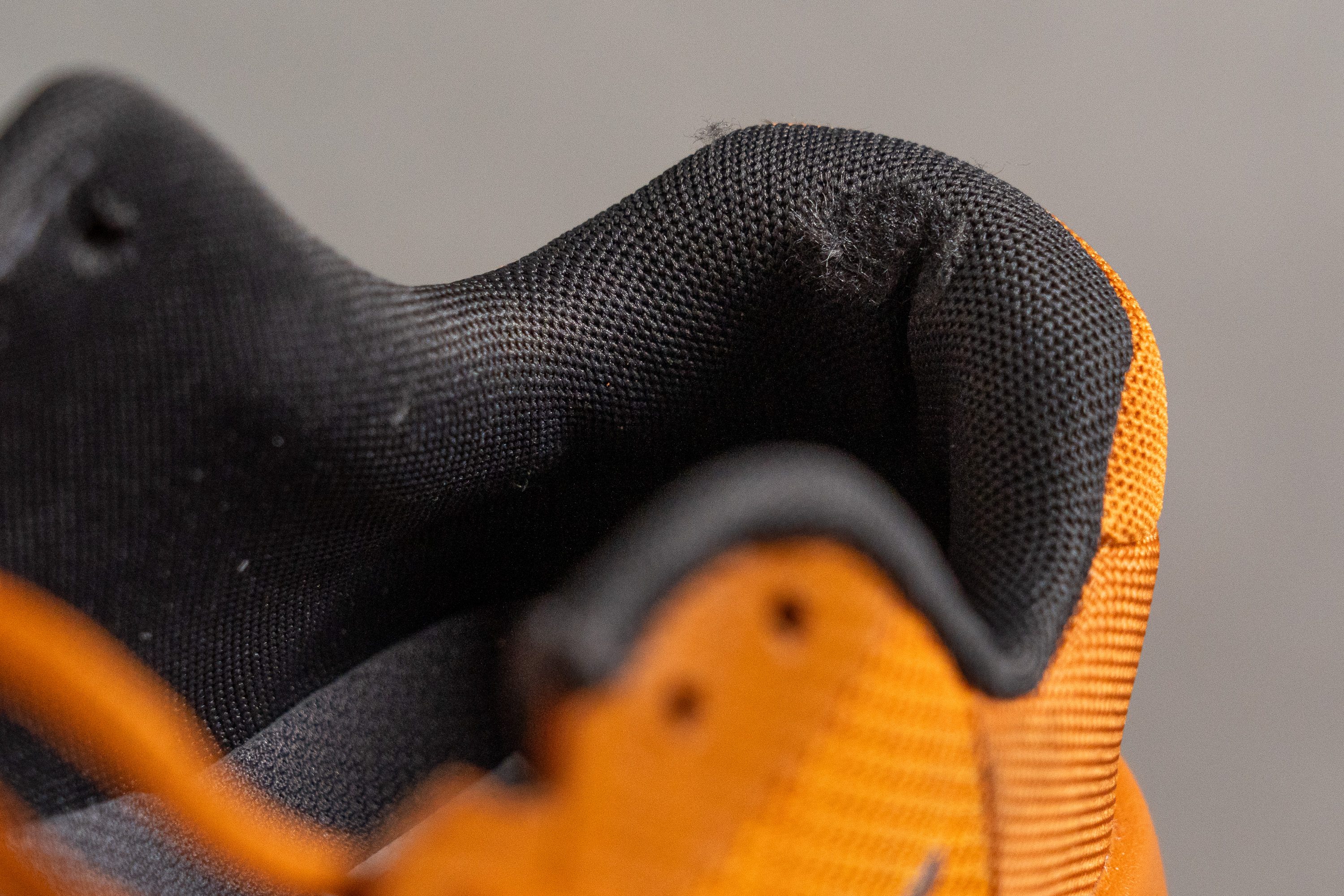
| Metcon 9 | 4 |
| Average | 2.7 |
Outsole hardness
It seems like every part of the Nike Metcon 9 screams quality. Now looking at the shoe's outsole, we believe that it is ready for some serious abuse.
Pressing our durometer against the outsole, we got a pretty high reading of 91.0 HC. This turns out to be one of the hardest rubbers in training shoes. And as our experience shows, hard is often synonymous with durable.
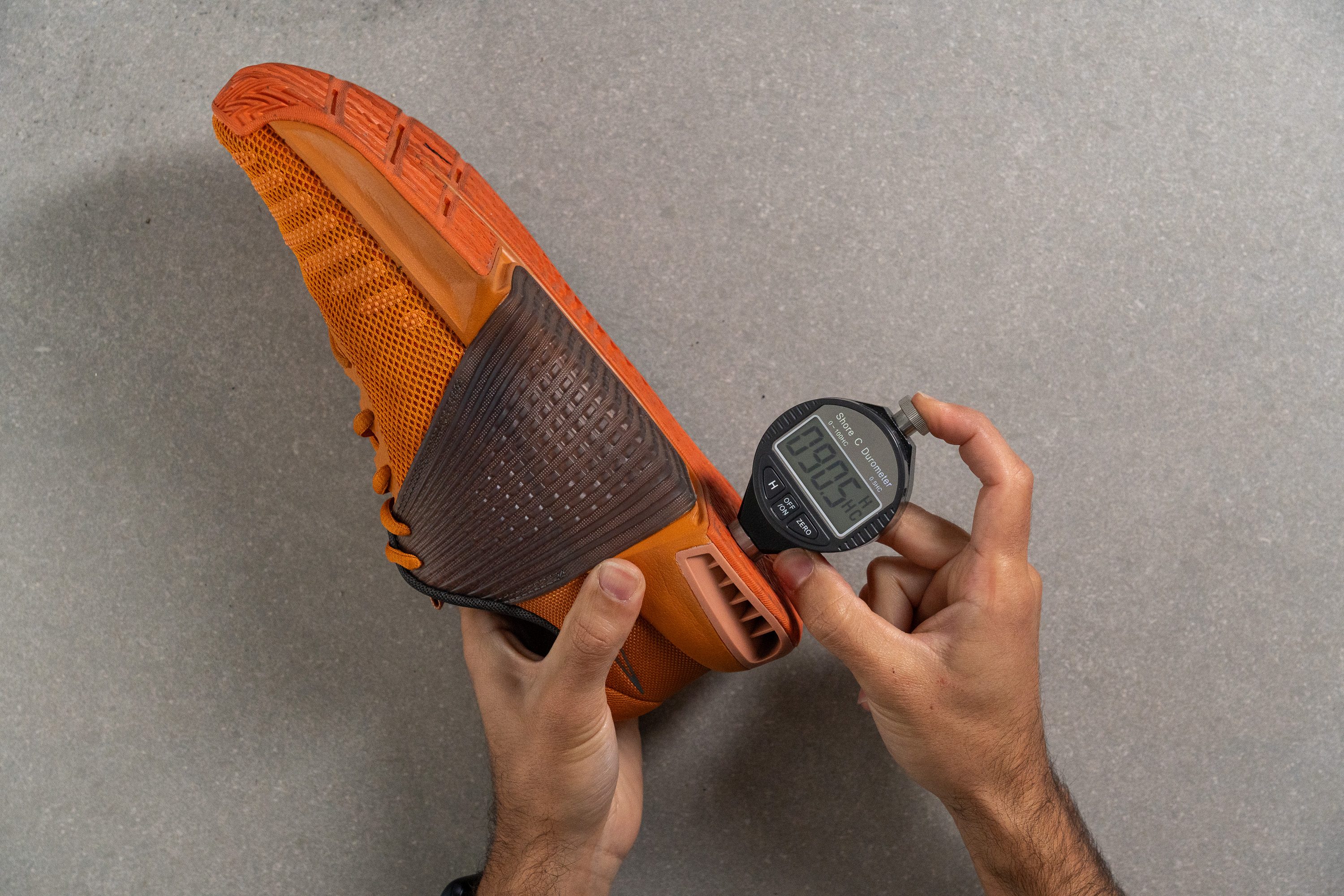
| Metcon 9 | 91.0 HC |
| Average | 83.3 HC |
Outsole durability
We applied the Dremel for 22 seconds at a higher speed of 10K RPM to see how much damage it causes to the Metcon's outsole.
While the result wasn't as news-breaking as we expected, this cross-trainer showed pretty solid resistance to abrasion. Measuring the depth of the dent with a tread gauge, we got 0.9 mm. This is typical for training shoe outsoles.
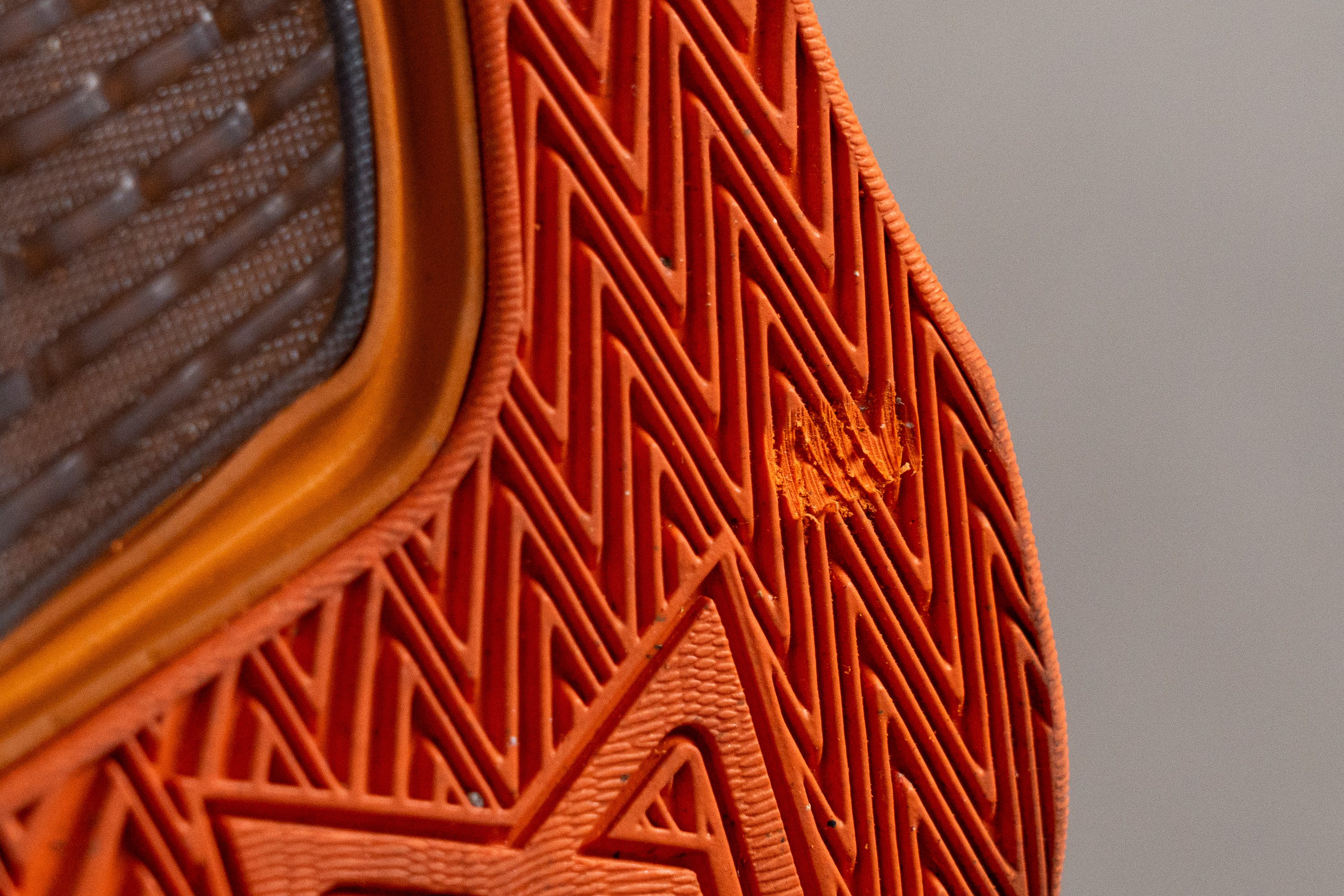
| Metcon 9 | 0.9 mm |
| Average | 1.1 mm |
Outsole thickness
The amount of rubber in the shoe's outsole looks rather promising too. Using a caliper, we found that it is 3.2 mm thick. If you train indoors, this is plenty of rubber.
But if you'd like to take your workouts outside, we recommend the Reebok Nano X2 TR Adventure instead.
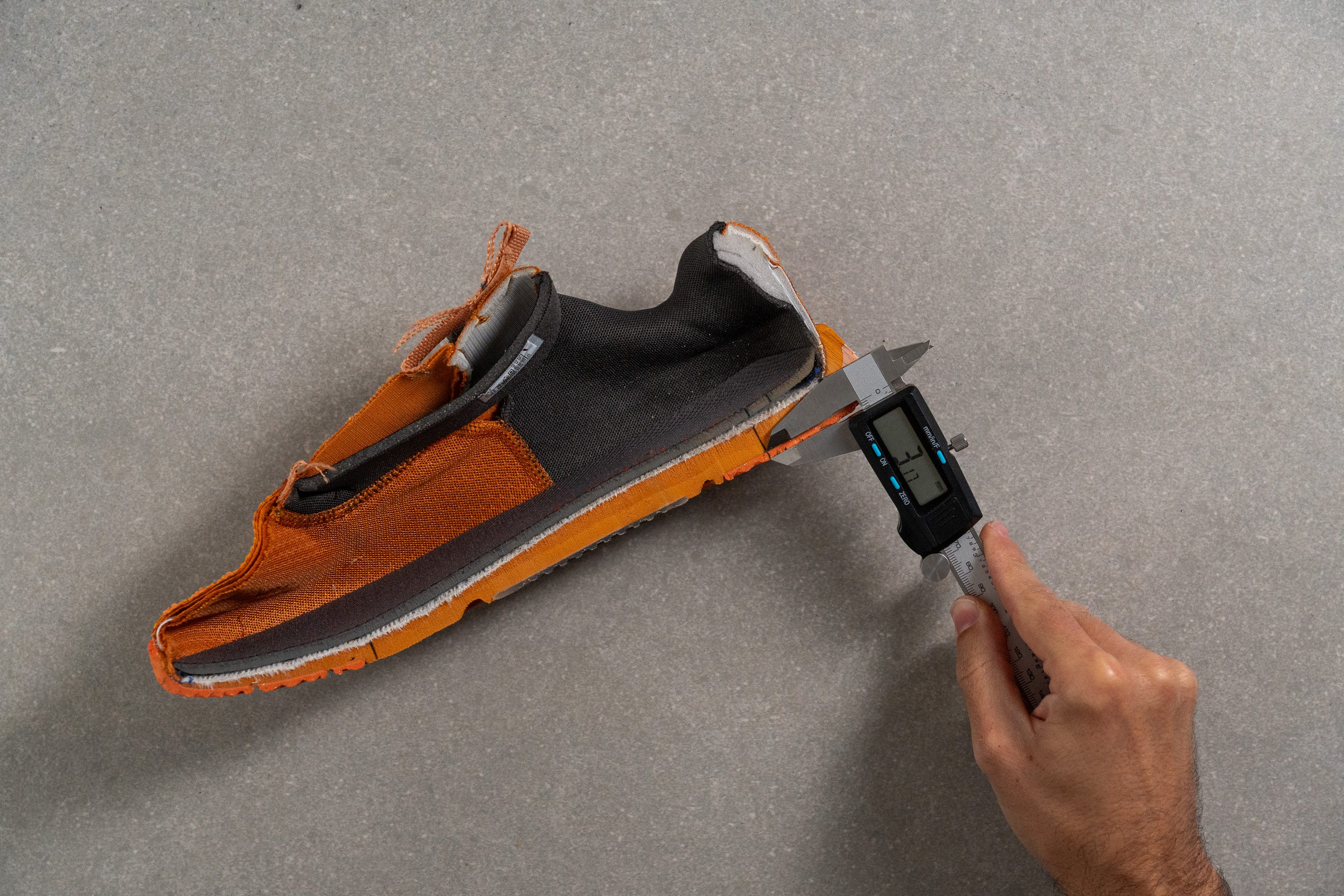
| Metcon 9 | 3.2 mm |
| Average | 3.6 mm |
Rope protection
When you first look at the Nike Metcon 9, the first thing that catches your eye is the immense rope protection on the sides.
Especially on the inner side! We haven't seen rope guards of this size in any previous Metcons or cross-trainers in general.
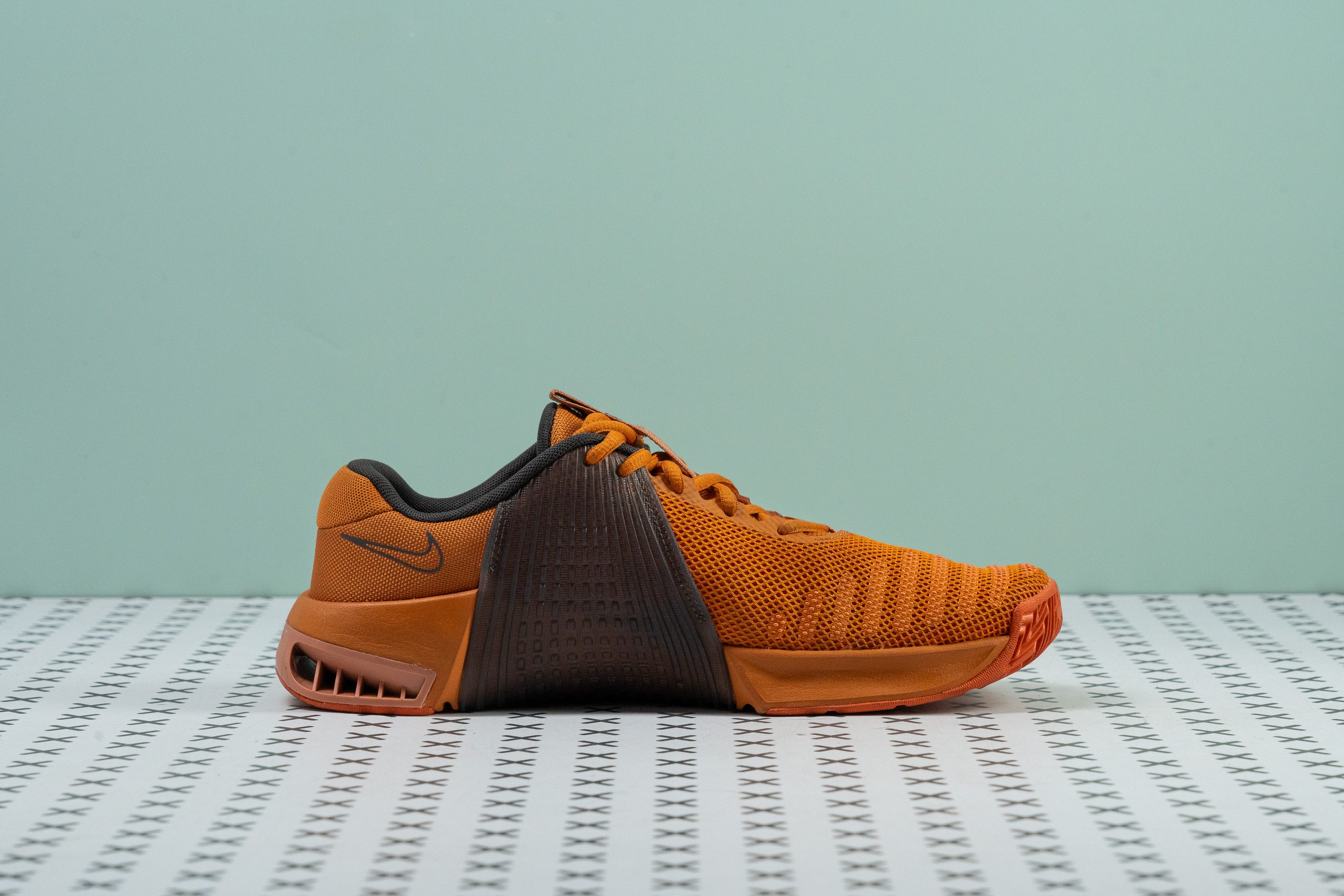
As long as you contact the rope with these overlays only, the rest of the shoe upper remains intact. Their looks may be polarizing but their ability to bite the rope on ascents and let you slide down on descents is unmatched!
The middle portion of the shoe's sole also has a slightly curved shape which allows a more ergonomic wrap around the rope.
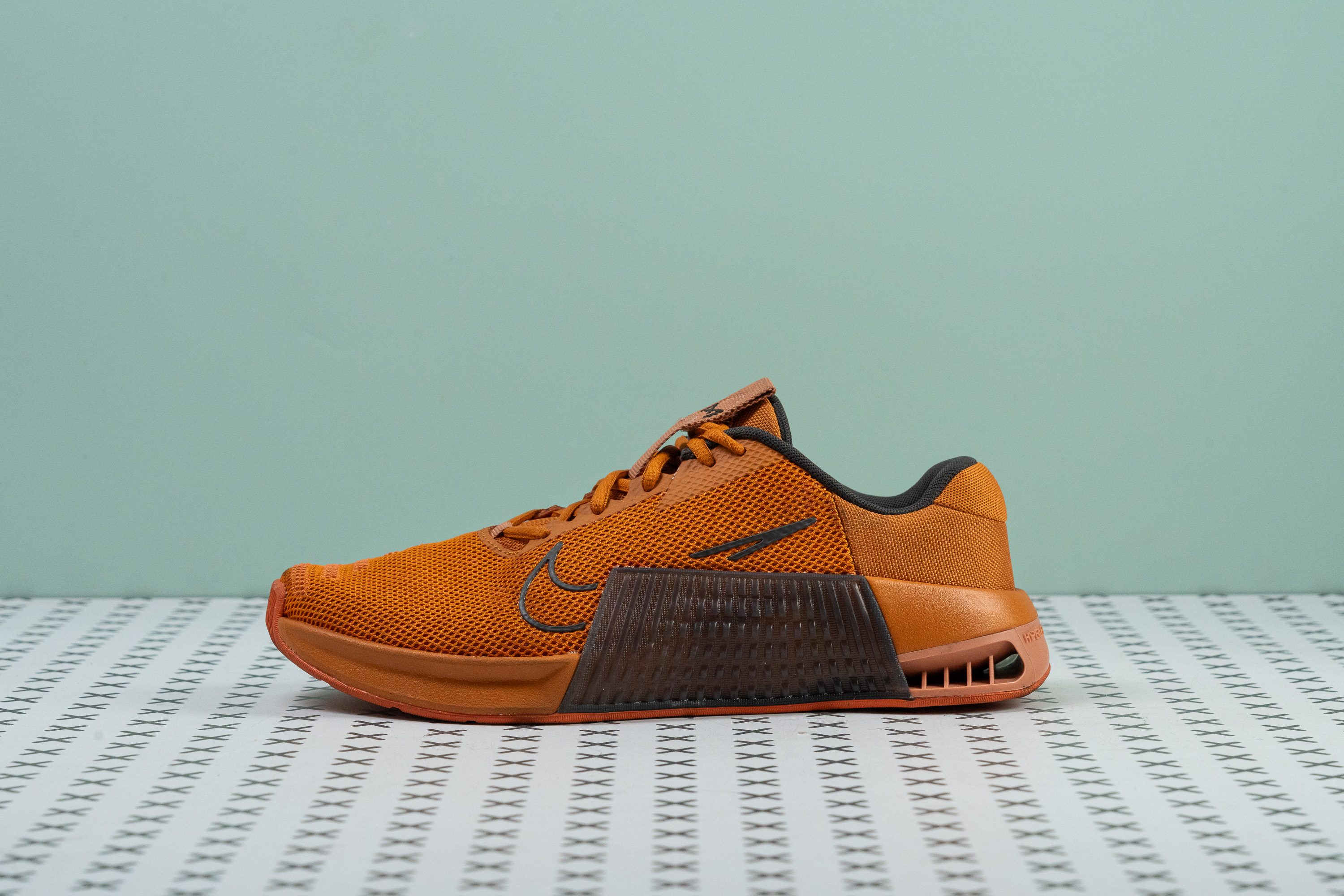
And while we believe that this is one of the best rope climbing trainers in history, we also felt like it was an overkill for most athletes. Not everyone needs THIS amount of assistance every day.
Misc
Insole thickness
Our feet also felt very well padded inside the Metcon 9 courtesy of the insole. Measuring it in the heel, we found that it is slightly thicker than average at 4.2 mm.
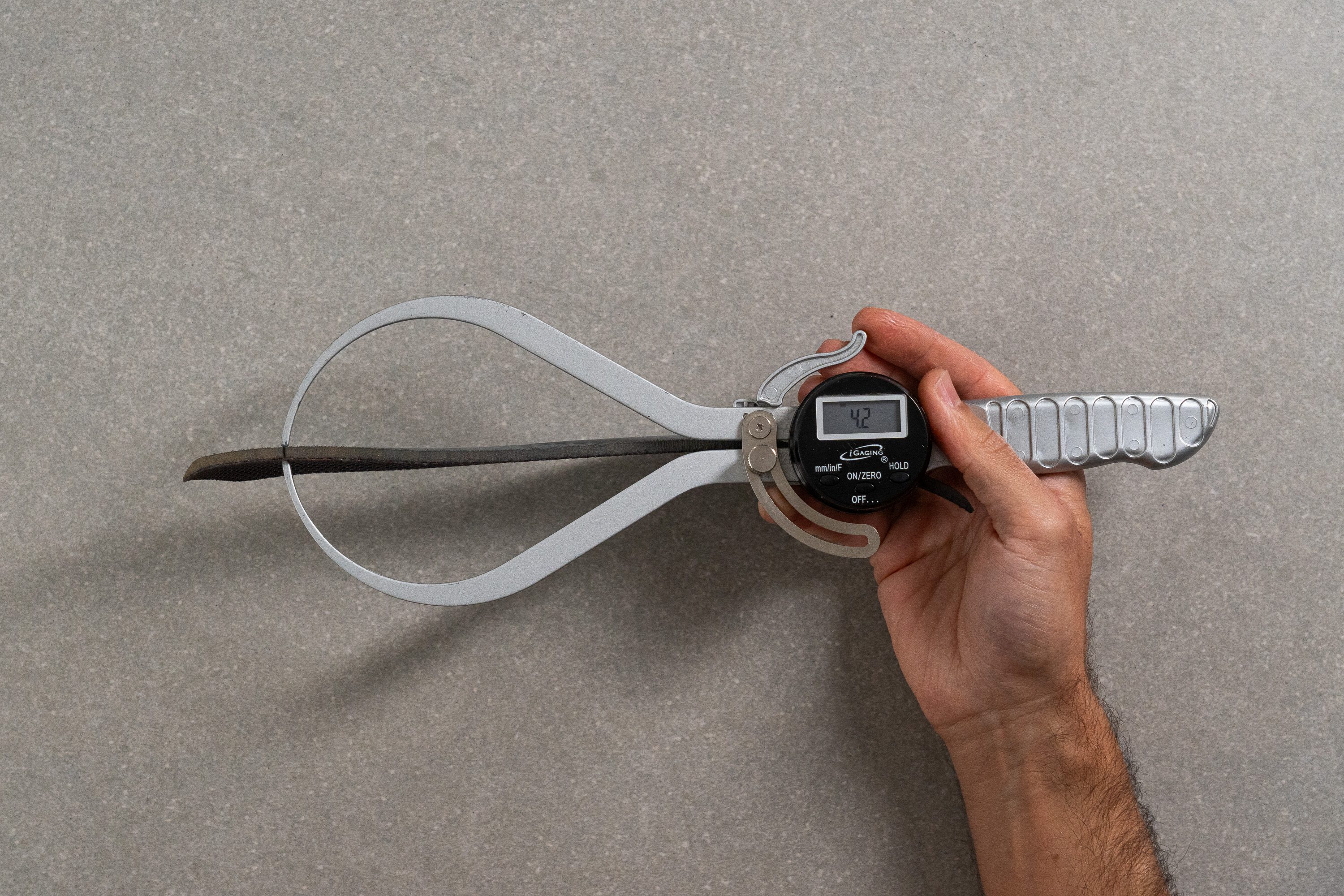
| Metcon 9 | 4.2 mm |
| Average | 4.0 mm |
Removable insole
For those who prefer wearing custom orthotics in their gym shoes, the stock insole is easily removable in the Nike Metcon 9.
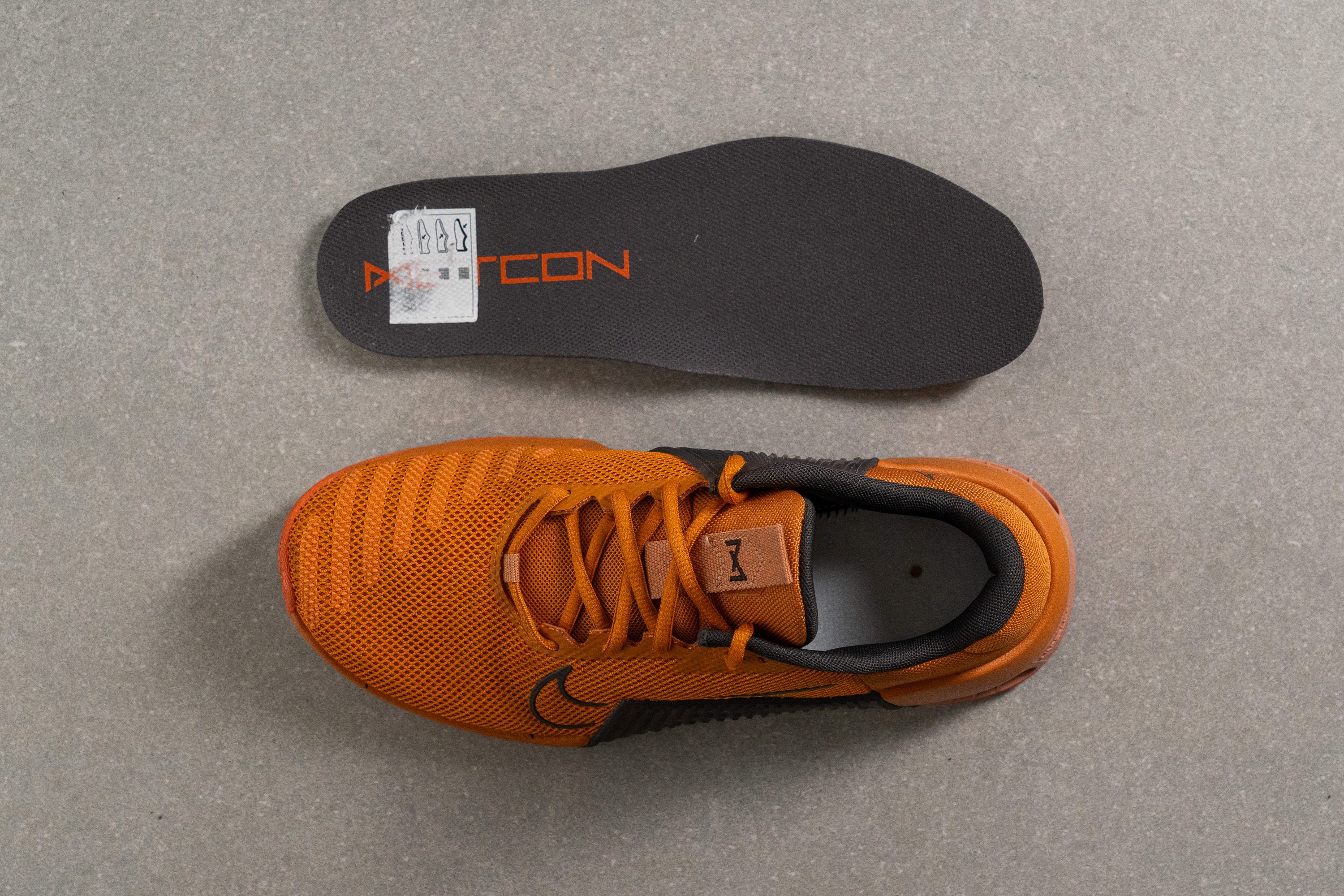
| Metcon 9 | Yes |
Tongue padding
Compared to many other cross-trainers on the market, the Nike Metcon 9 felt more comfortable and padded inside. Particularly around the collar and in the tongue.
Checking its tongue thickness with a caliper, we got 7.9 mm. Slightly thicker than average. This aspect of the trainer makes it more comfortable for coaching and walking around the gym venue.
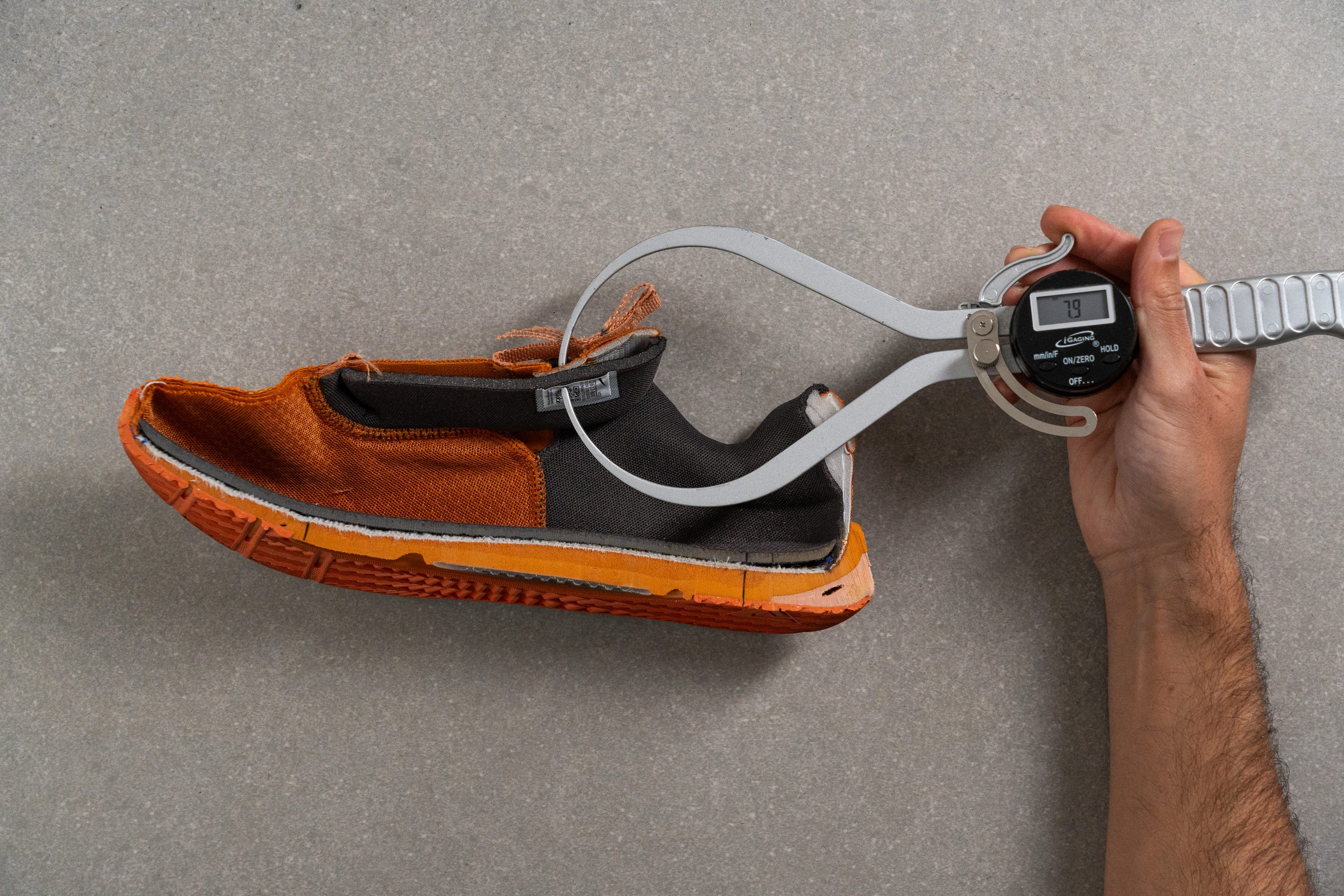
| Metcon 9 | 7.9 mm |
| Average | 5.5 mm |
Tongue: gusset type
This Nike Metcon shoe features gussets on both sides of the tongue. They prevent the latter from annoyingly shifting sideways during the workout.
Never once did we have to stop and make adjustments. At the gym, it should be about the athlete and not their shoe tongue!
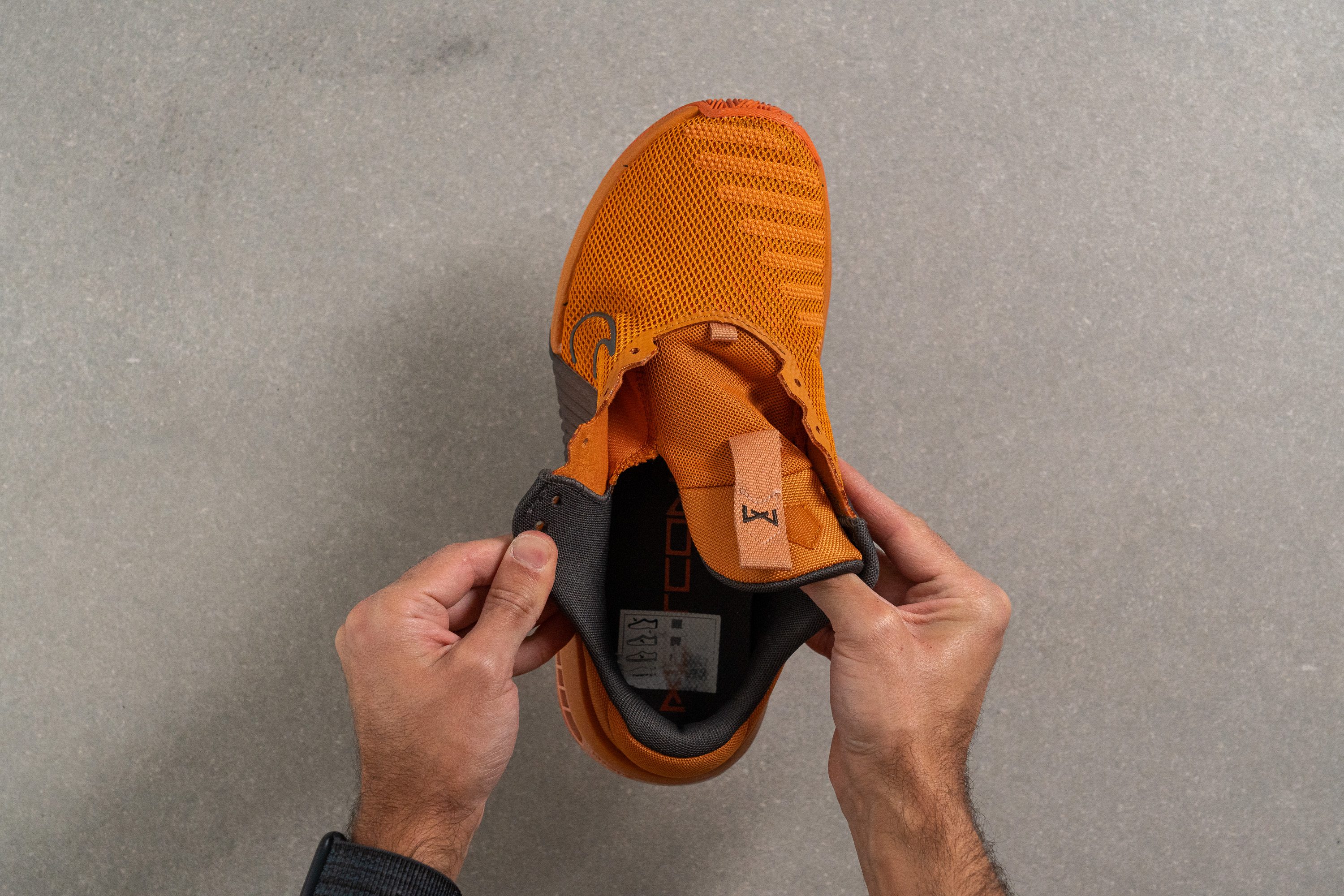
| Metcon 9 | Both sides (full) |
